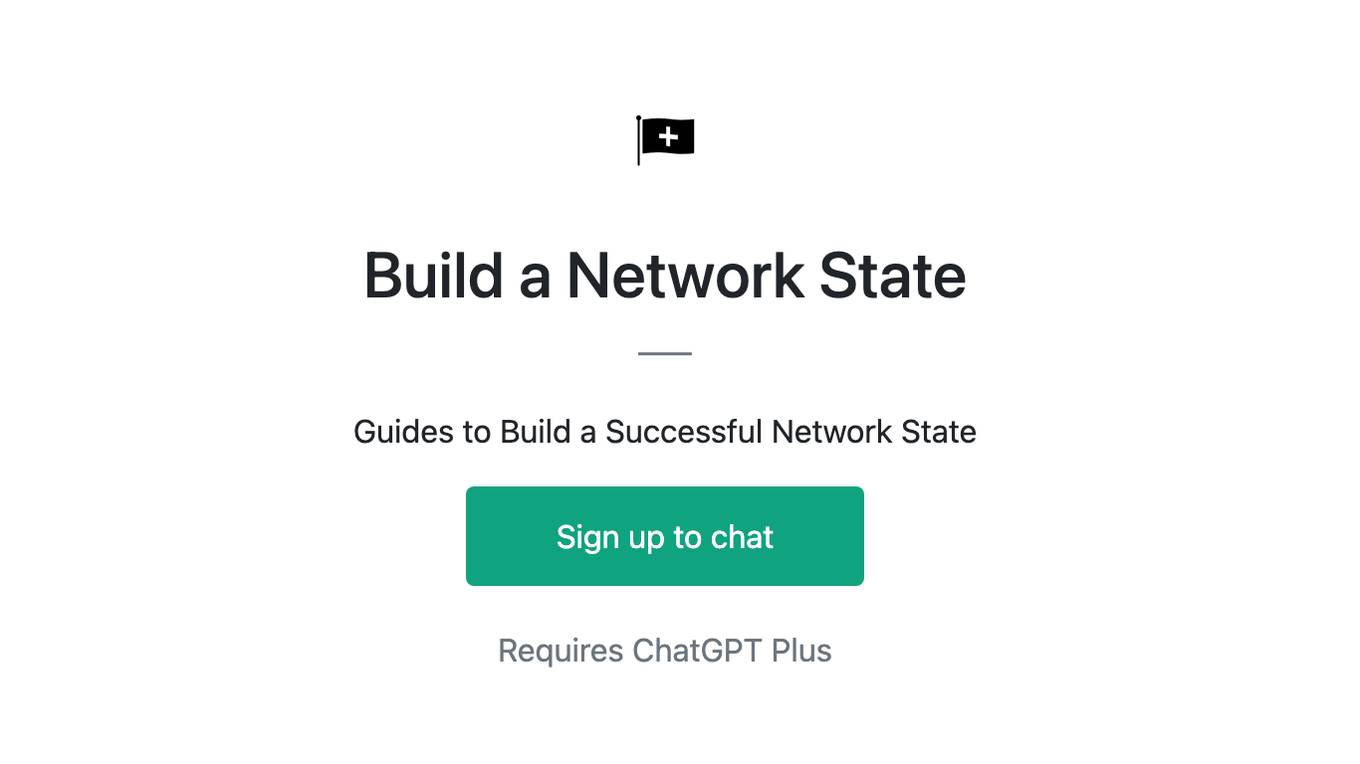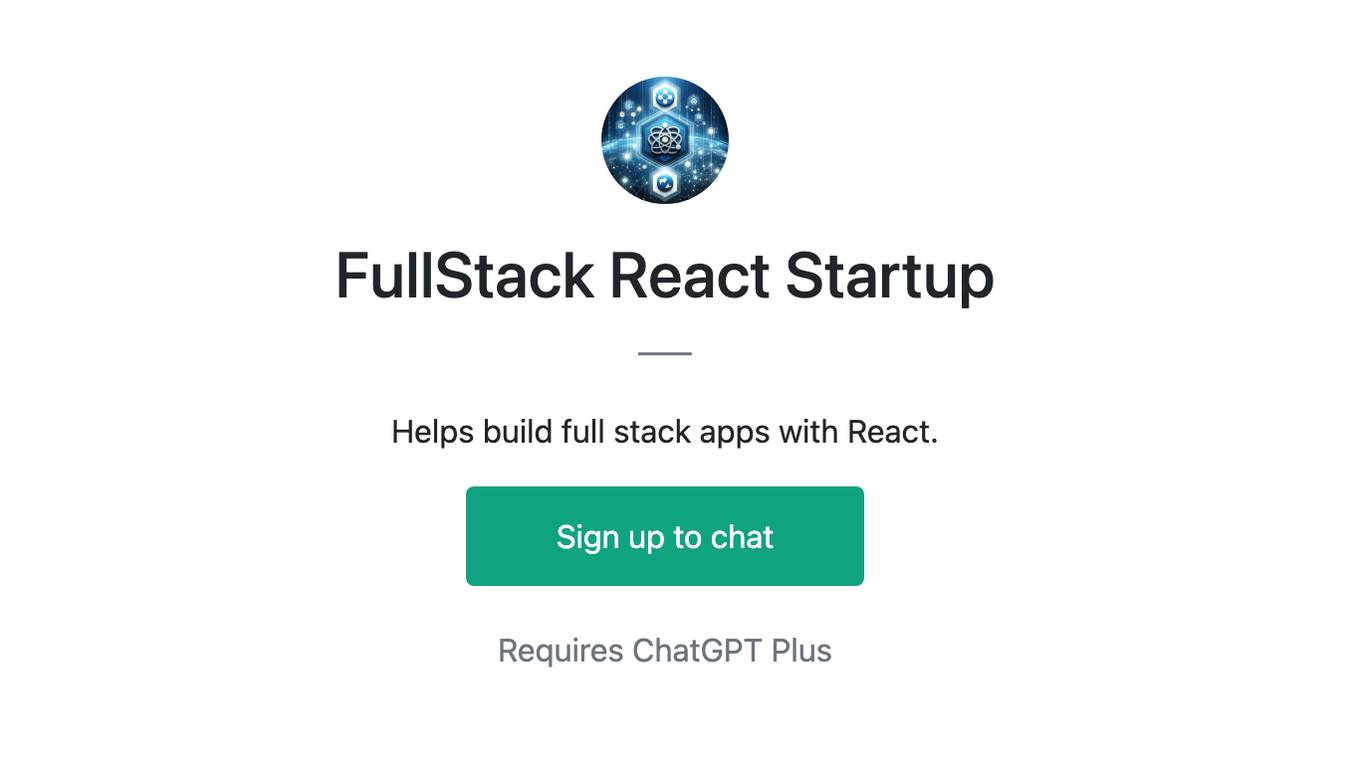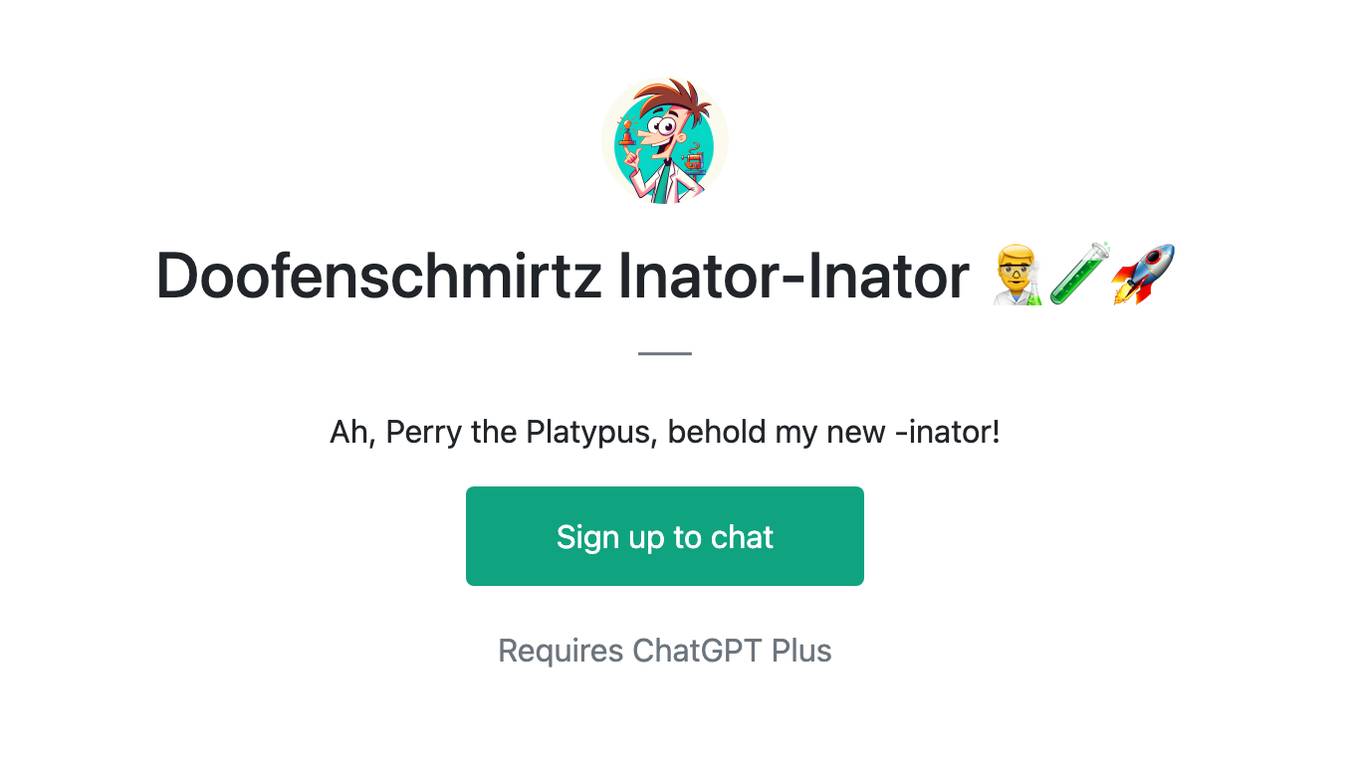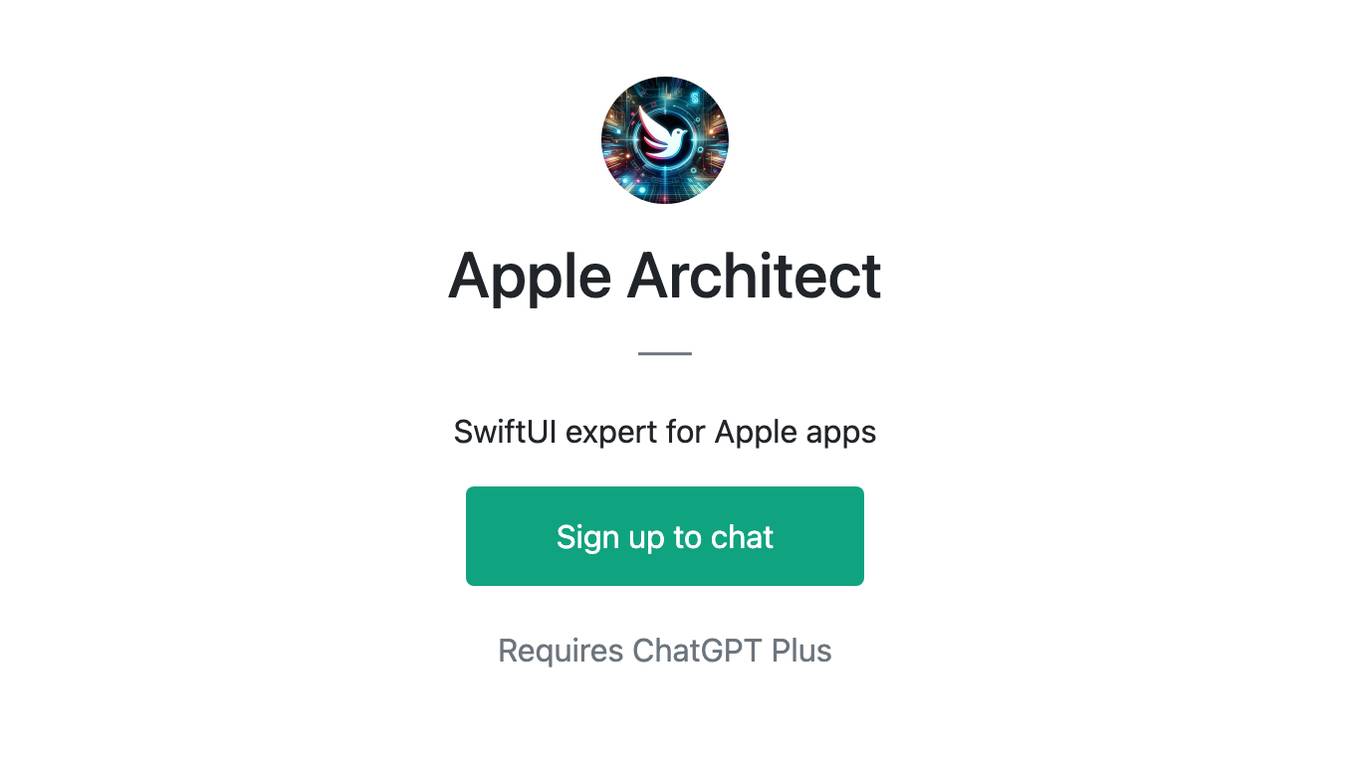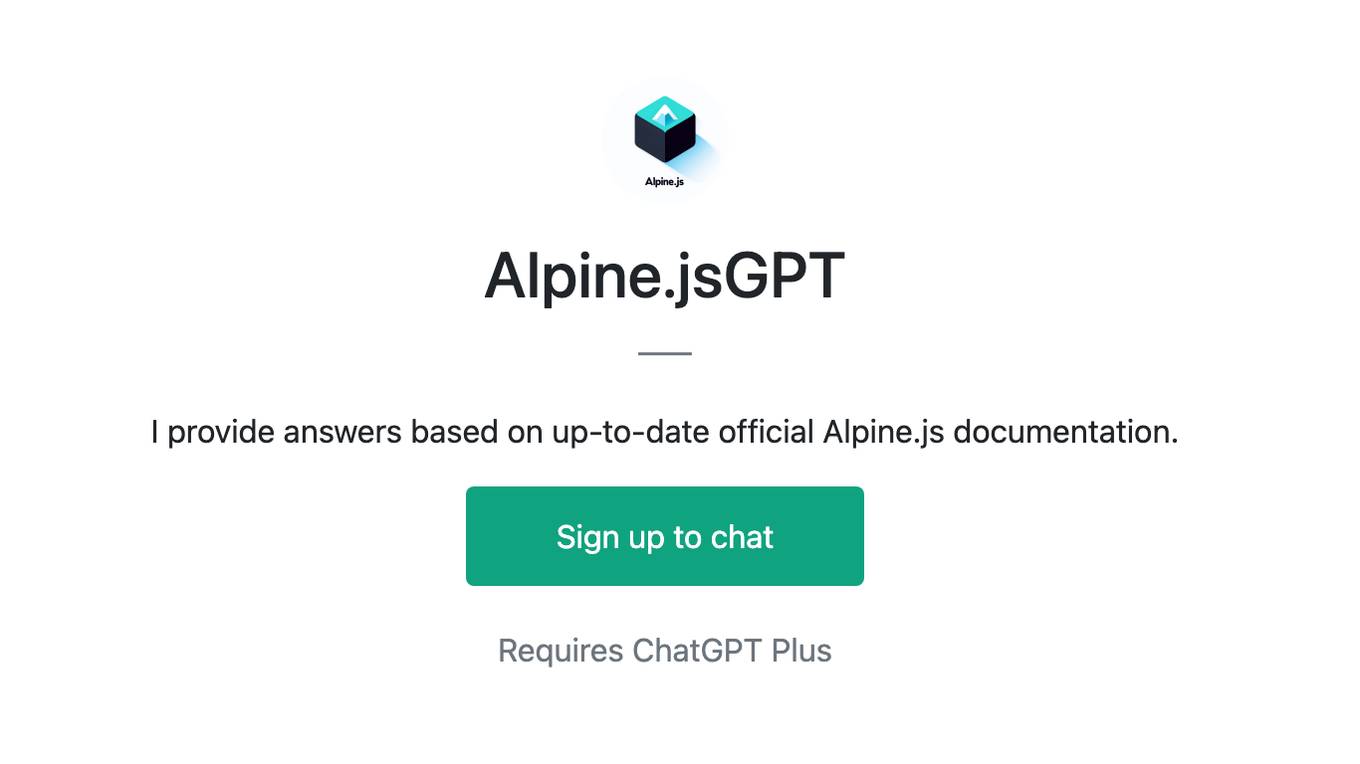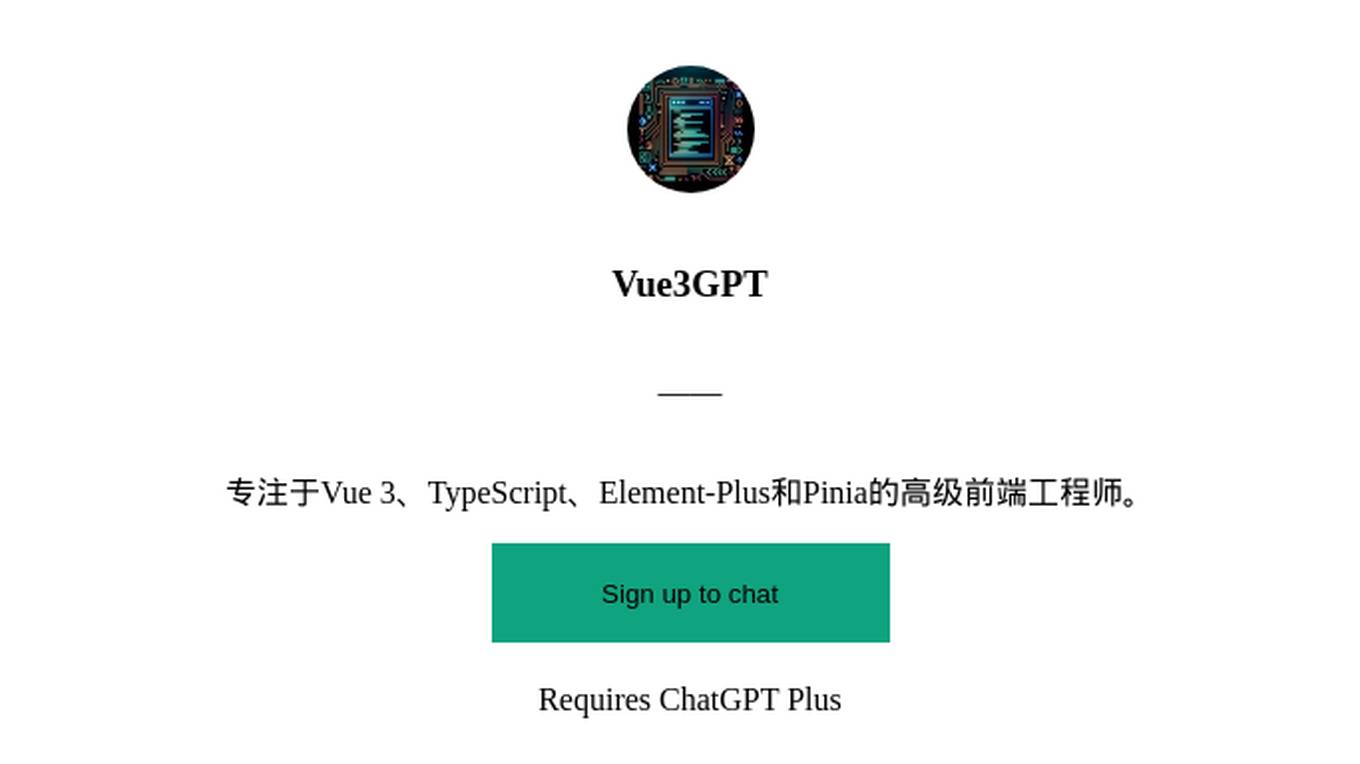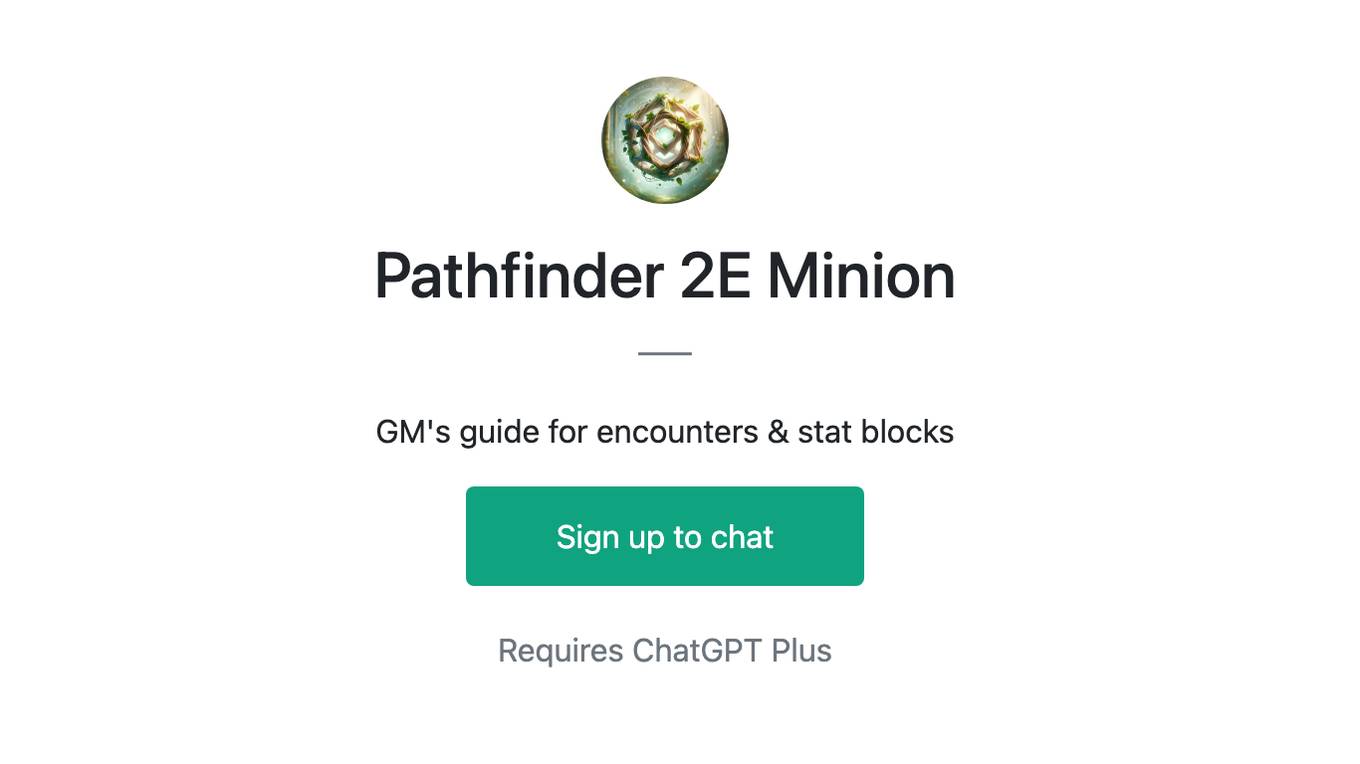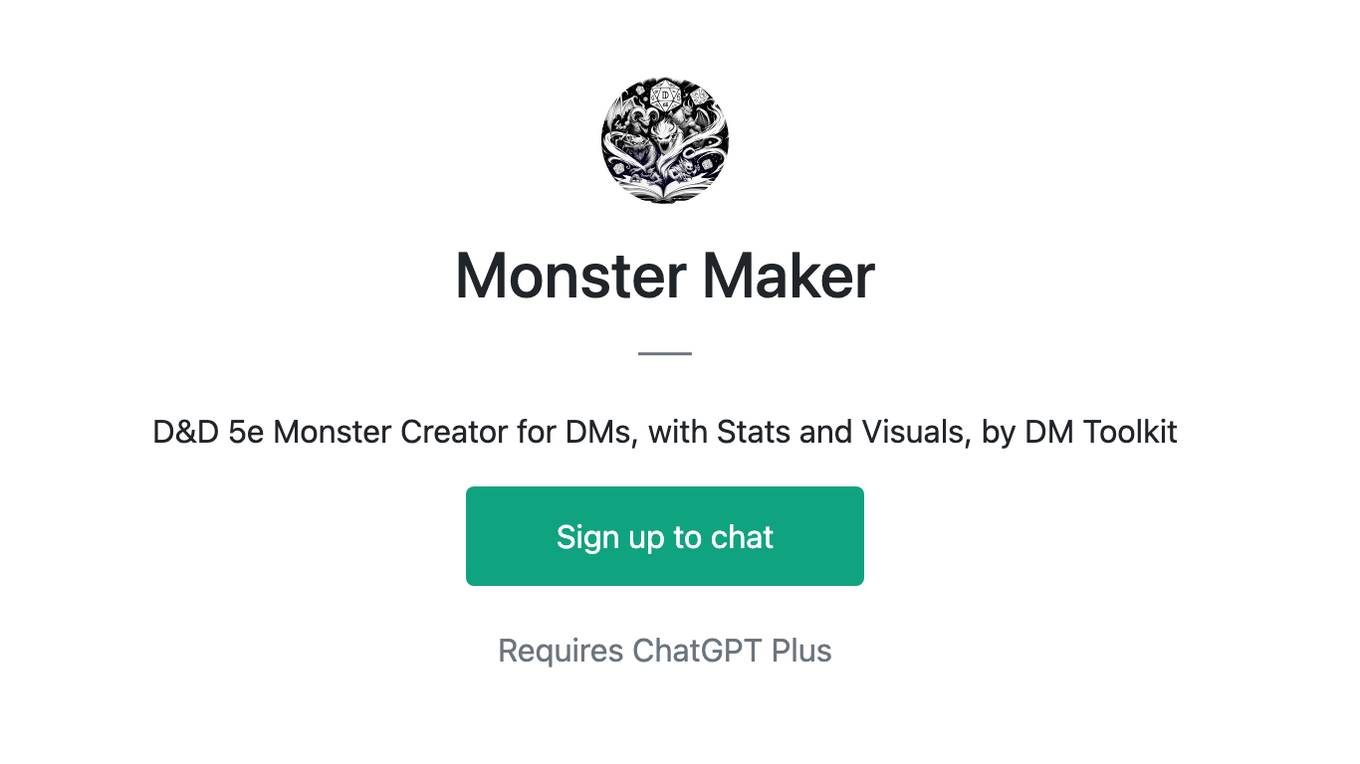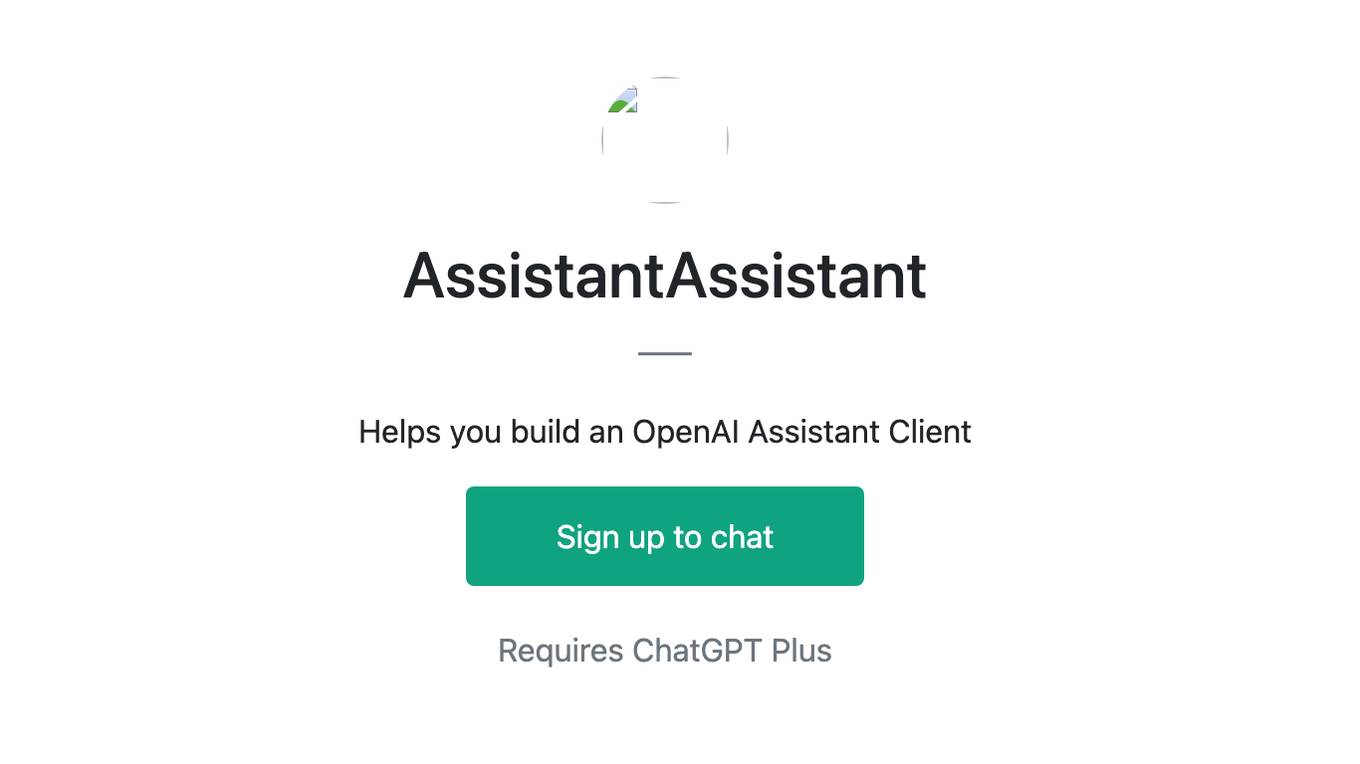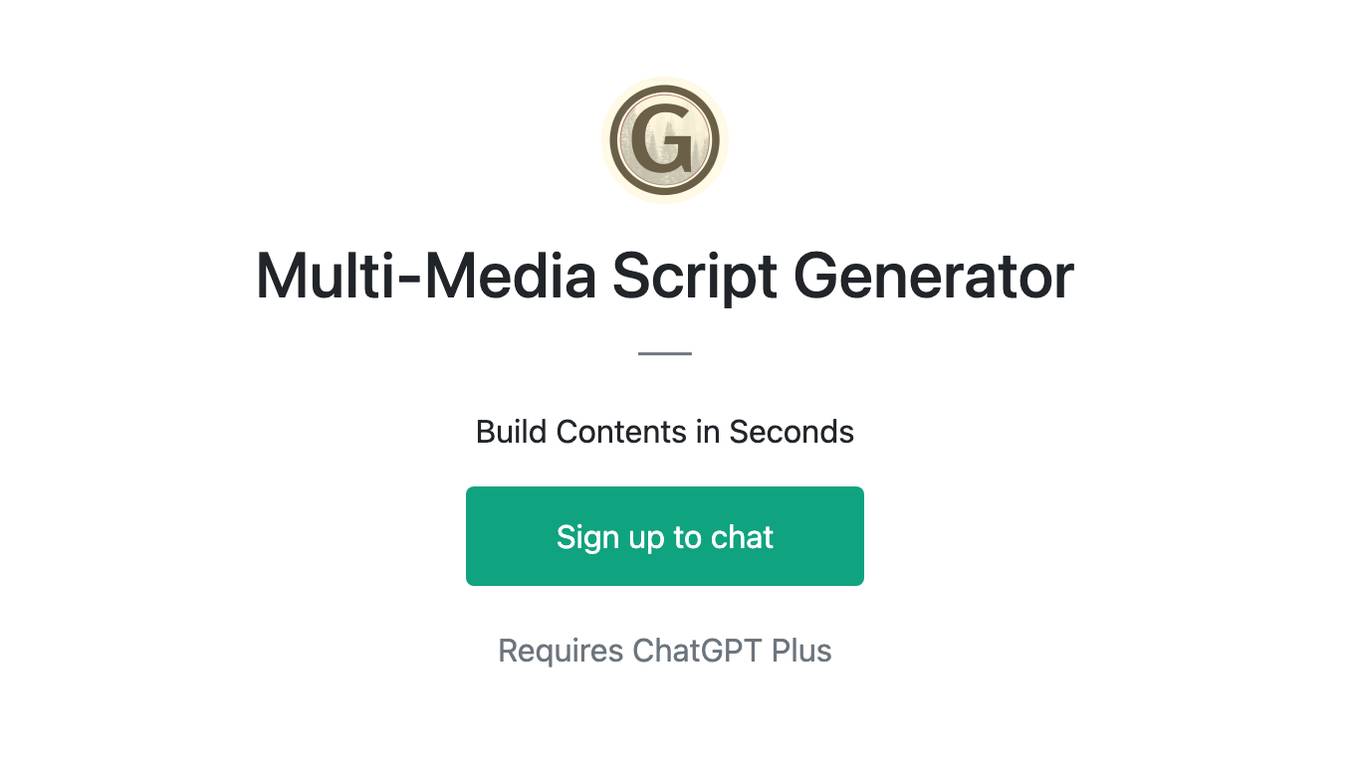Best AI tools for< Build State Machines >
20 - AI tool Sites
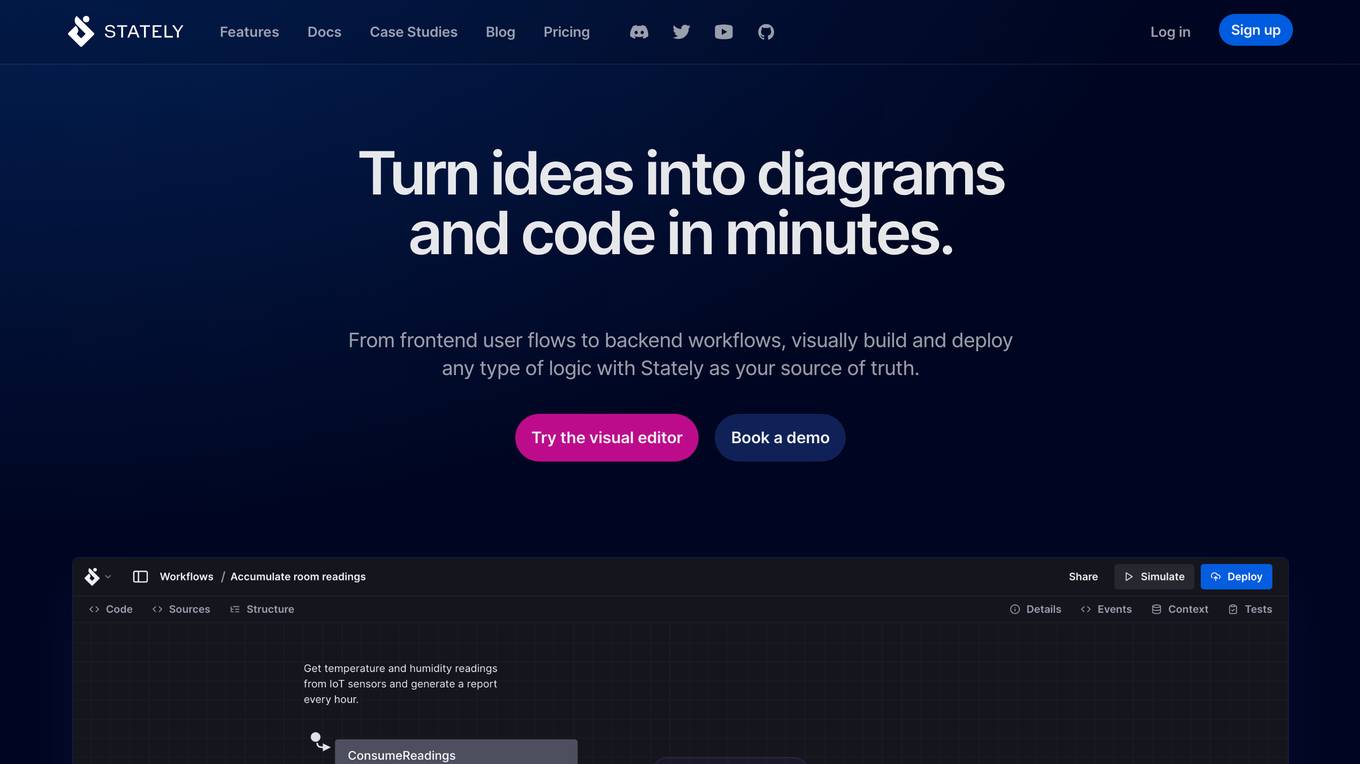
Stately
Stately is a visual logic builder that enables users to create complex logic diagrams and code in minutes. It provides a drag-and-drop editor that brings together contributors of all backgrounds, allowing them to collaborate on code, diagrams, documentation, and test generation in one place. Stately also integrates with AI to assist in each phase of the development process, from scaffolding behavior and suggesting variants to turning up edge cases and even writing code. Additionally, Stately offers bidirectional updates between code and visualization, allowing users to use the tools that make them most productive. It also provides integrations with popular frameworks such as React, Vue, and Svelte, and supports event-driven programming, state machines, statecharts, and the actor model for handling even the most complex logic in predictable, robust, and visual ways.
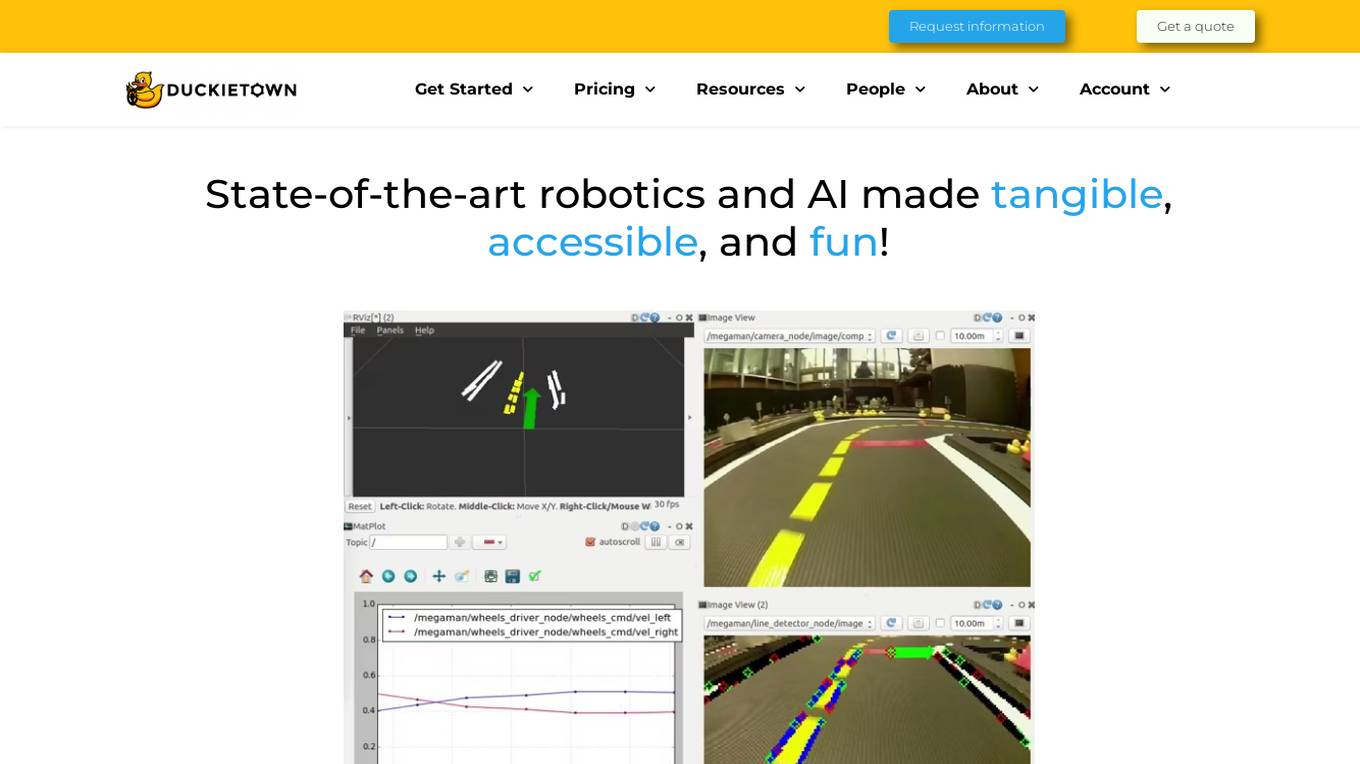
Duckietown
Duckietown is a platform for delivering cutting-edge robotics and AI learning experiences. It offers teaching resources to instructors, hands-on activities to learners, an accessible research platform to researchers, and a state-of-the-art ecosystem for professional training. Duckietown's mission is to make robotics and AI education state-of-the-art, hands-on, and accessible to all.
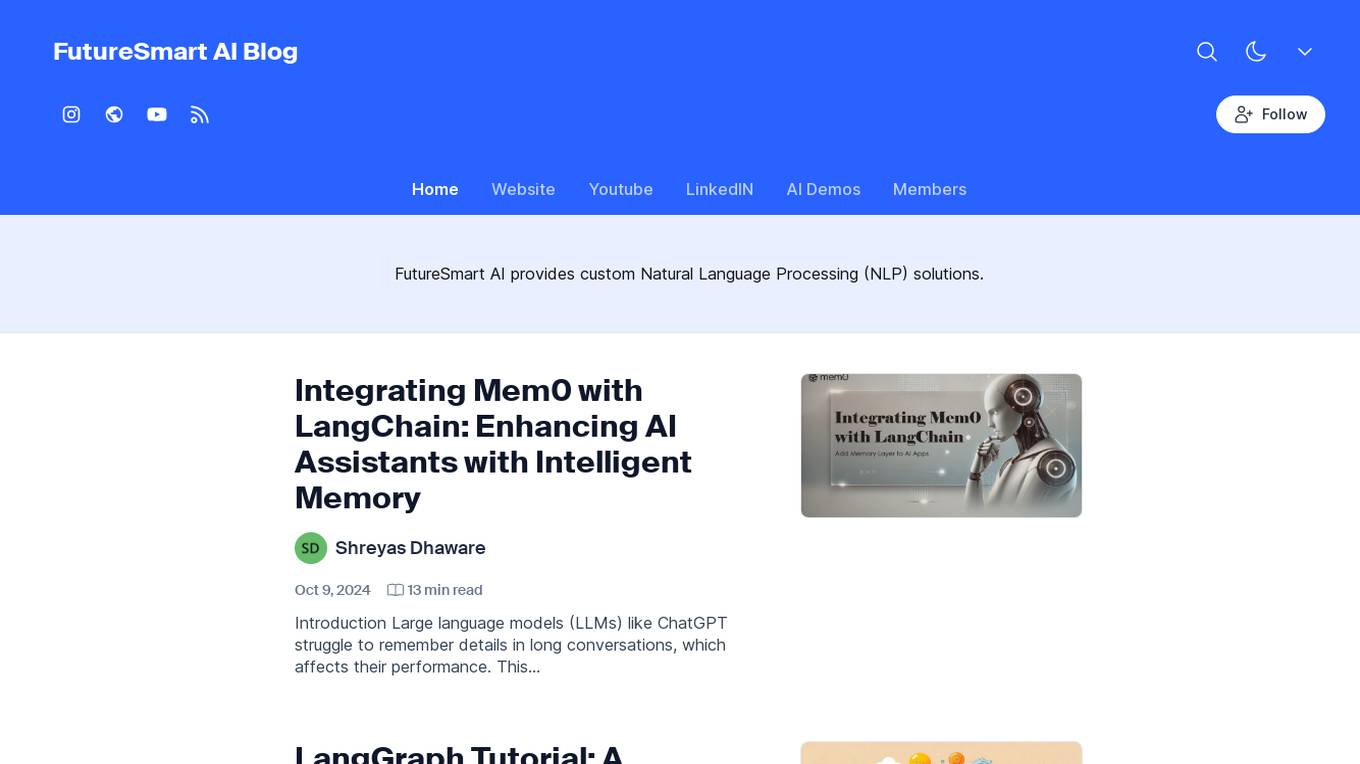
FutureSmart AI
FutureSmart AI is a platform that provides custom Natural Language Processing (NLP) solutions. The platform focuses on integrating Mem0 with LangChain to enhance AI Assistants with Intelligent Memory. It offers tutorials, guides, and practical tips for building applications with large language models (LLMs) to create sophisticated and interactive systems. FutureSmart AI also features internship journeys and practical guides for mastering RAG with LangChain, catering to developers and enthusiasts in the realm of NLP and AI.
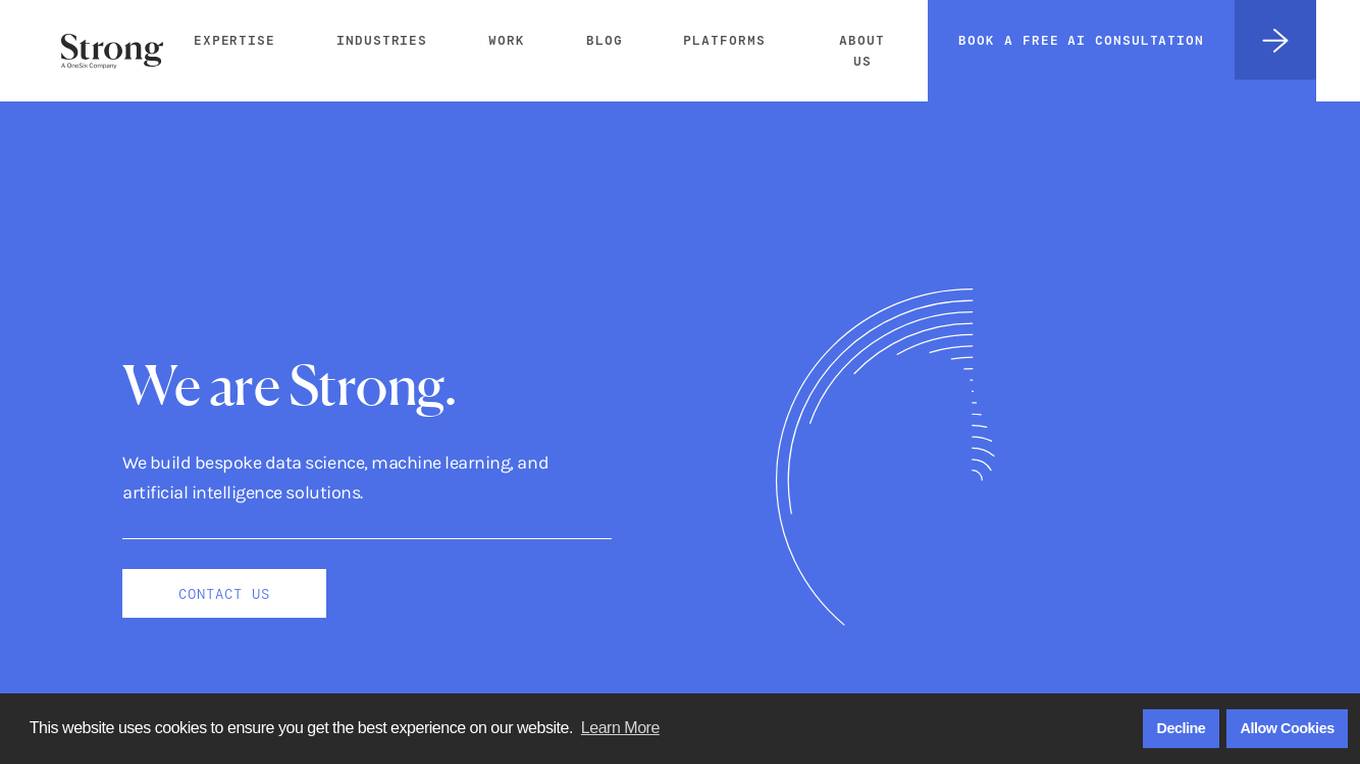
Strong Analytics
Strong Analytics is a data science consulting and machine learning engineering company that specializes in building bespoke data science, machine learning, and artificial intelligence solutions for various industries. They offer end-to-end services to design, engineer, and deploy custom AI products and solutions, leveraging a team of full-stack data scientists and engineers with cross-industry experience. Strong Analytics is known for its expertise in accelerating innovation, deploying state-of-the-art techniques, and empowering enterprises to unlock the transformative value of AI.
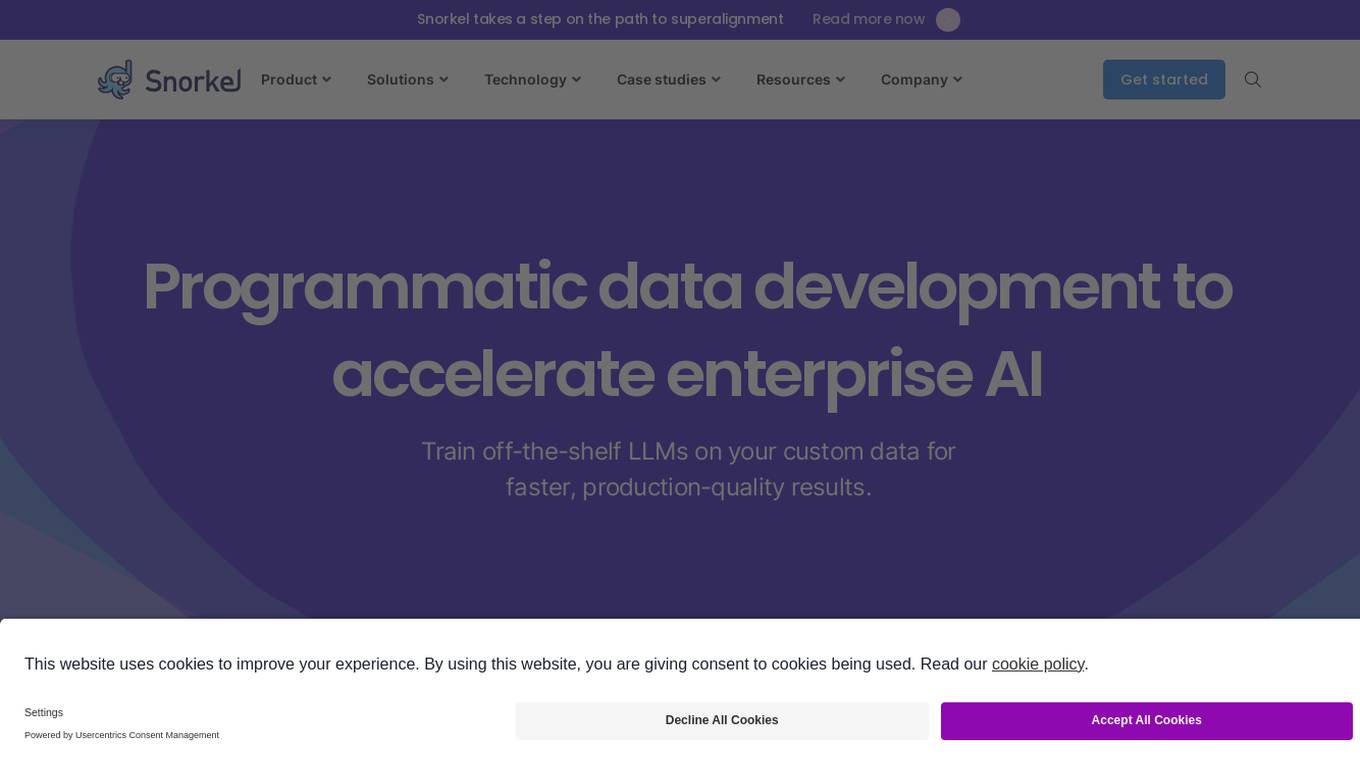
Snorkel AI
Snorkel AI is a data-centric AI application designed for enterprise use. It offers tools and platforms to programmatically label and curate data, accelerate AI development, and build high-quality generative AI applications. The application aims to help users develop AI models 100x faster by leveraging programmatic data operations and domain knowledge. Snorkel AI is known for its expertise in computer vision, data labeling, generative AI, and enterprise AI solutions. It provides resources, case studies, and research papers to support users in their AI development journey.
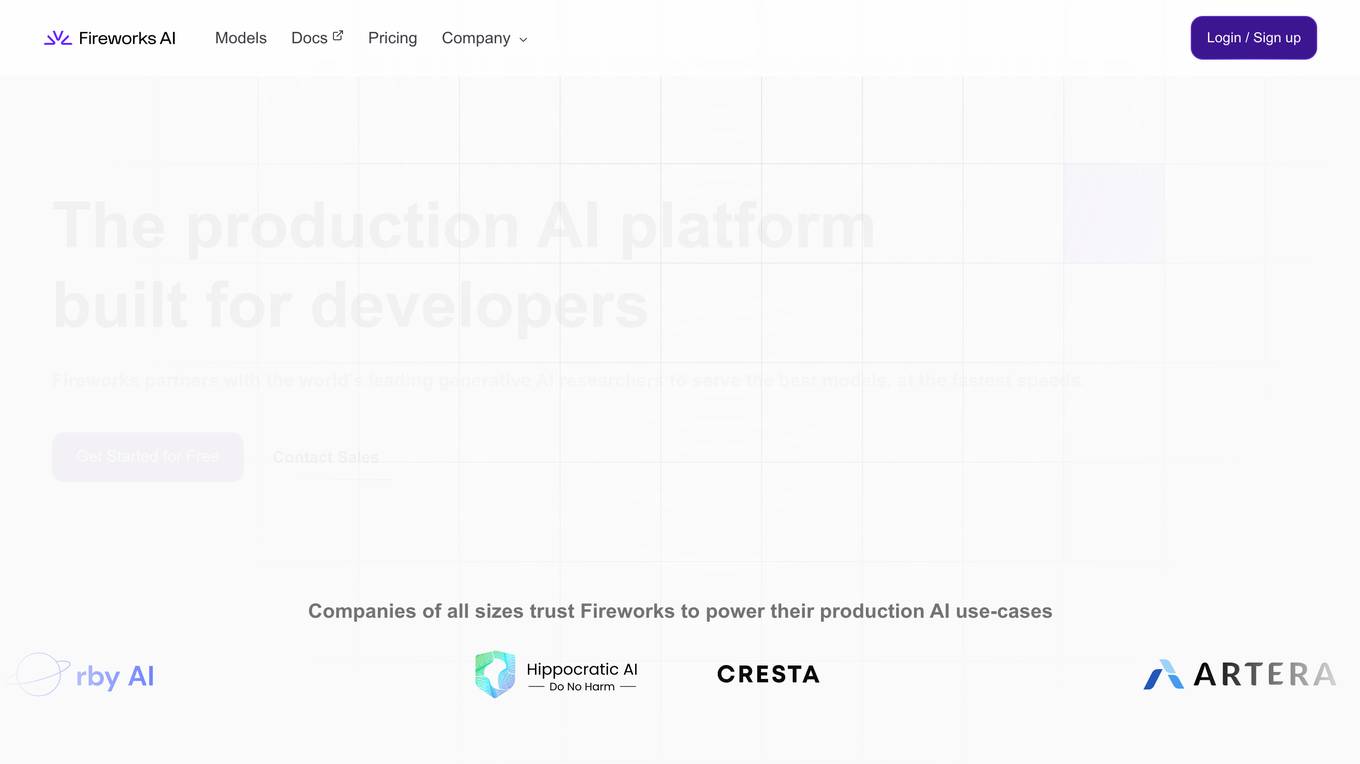
Fireworks
Fireworks is a generative AI platform for product innovation. It provides developers with access to the world's leading generative AI models, at the fastest speeds. With Fireworks, developers can build and deploy AI-powered applications quickly and easily.
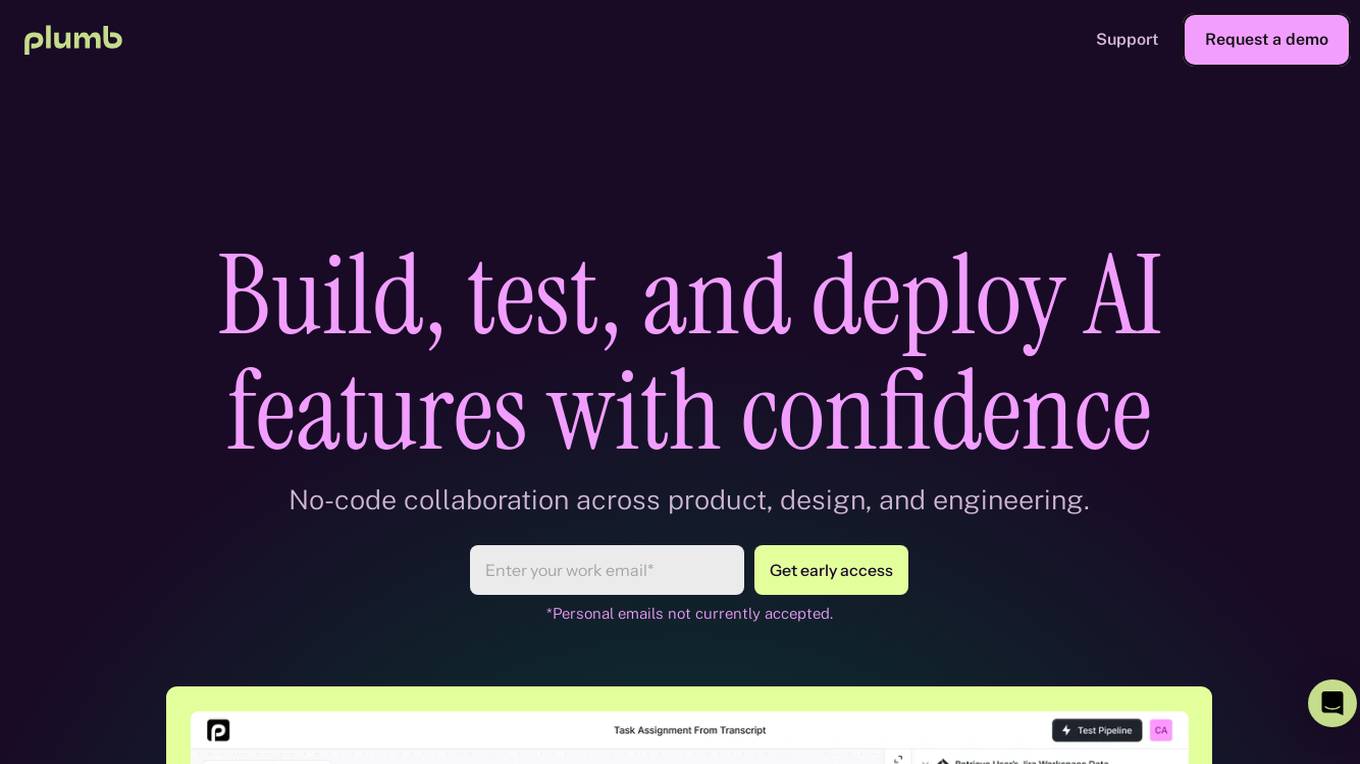
Plumb
Plumb is a no-code, node-based builder that empowers product, design, and engineering teams to create AI features together. It enables users to build, test, and deploy AI features with confidence, fostering collaboration across different disciplines. With Plumb, teams can ship prototypes directly to production, ensuring that the best prompts from the playground are the exact versions that go to production. It goes beyond automation, allowing users to build complex multi-tenant pipelines, transform data, and leverage validated JSON schema to create reliable, high-quality AI features that deliver real value to users. Plumb also makes it easy to compare prompt and model performance, enabling users to spot degradations, debug them, and ship fixes quickly. It is designed for SaaS teams, helping ambitious product teams collaborate to deliver state-of-the-art AI-powered experiences to their users at scale.
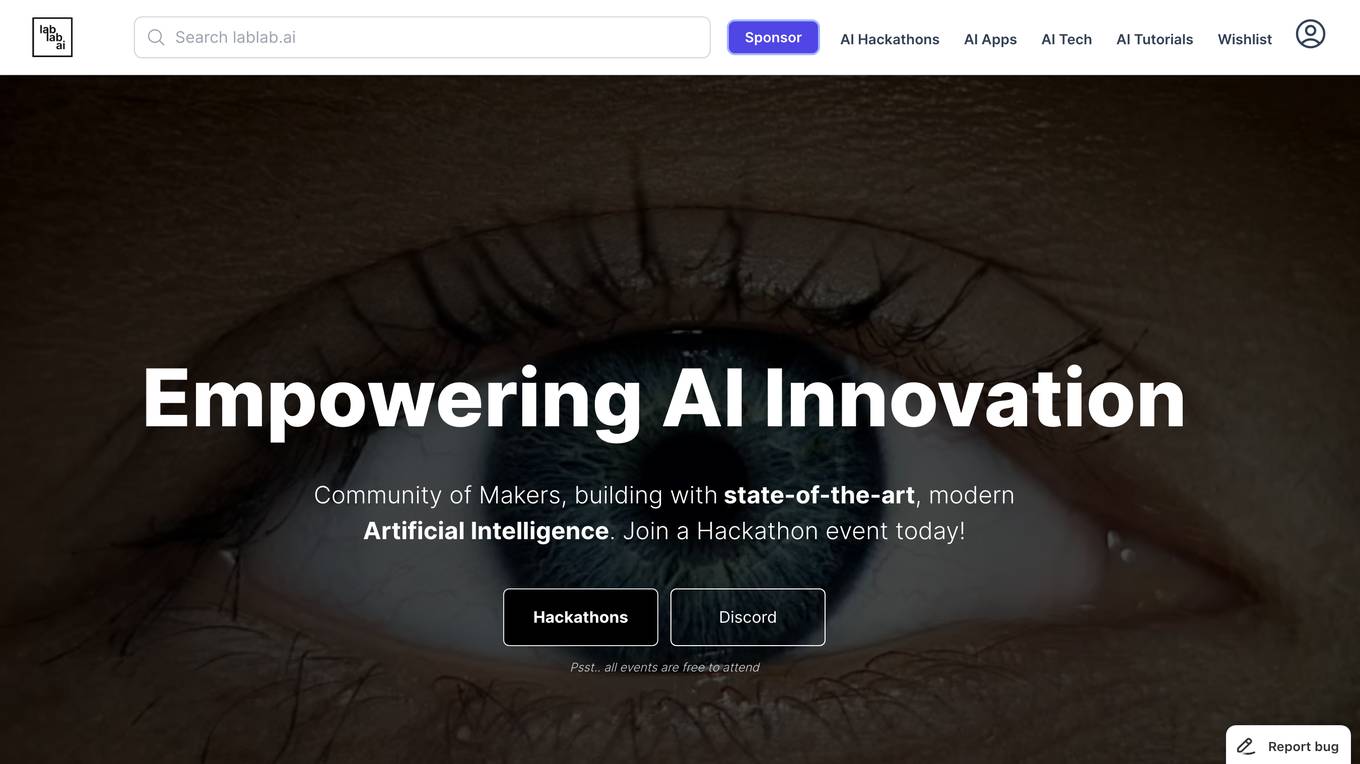
LabLab.ai
LabLab.ai is an online community and platform for artificial intelligence (AI) enthusiasts, developers, and innovators. The platform hosts AI hackathons, provides access to state-of-the-art AI technologies, and offers educational resources on AI. LabLab.ai aims to foster collaboration and innovation in the AI field and to make AI accessible to everyone.

Google Research
Google Research is a team of scientists and engineers working on a wide range of topics in computer science, including artificial intelligence, machine learning, and quantum computing. Our mission is to advance the state of the art in these fields and to develop new technologies that can benefit society. We publish hundreds of research papers each year and collaborate with researchers from around the world. Our work has led to the development of many new products and services, including Google Search, Google Translate, and Google Maps.
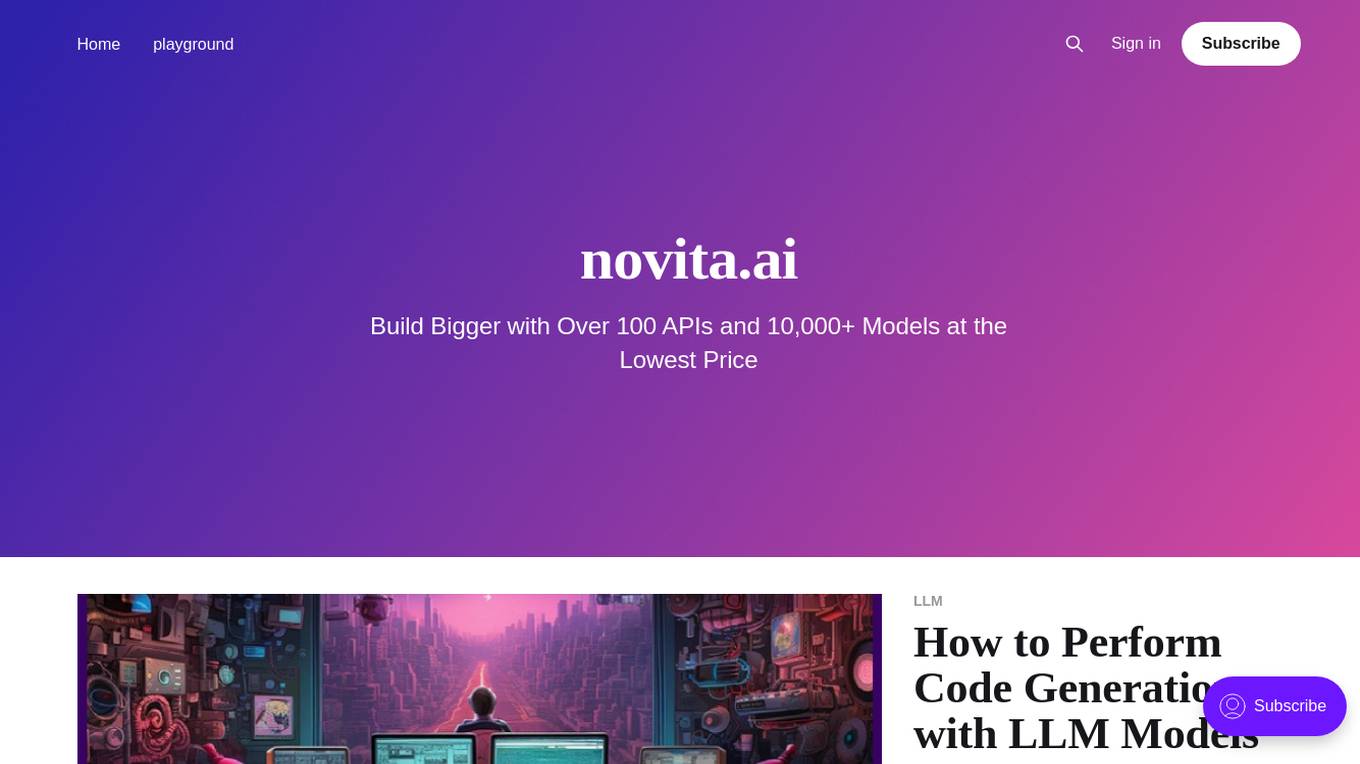
novita.ai
novita.ai is an AI-assisted tool designed to aid developers in code generation tasks. It offers a state-of-the-art large language model, Code Llama, which provides intelligent recommendations and transforms the coding experience. The platform leverages advancements in machine learning to enhance developers' productivity and accuracy in writing error-free code.
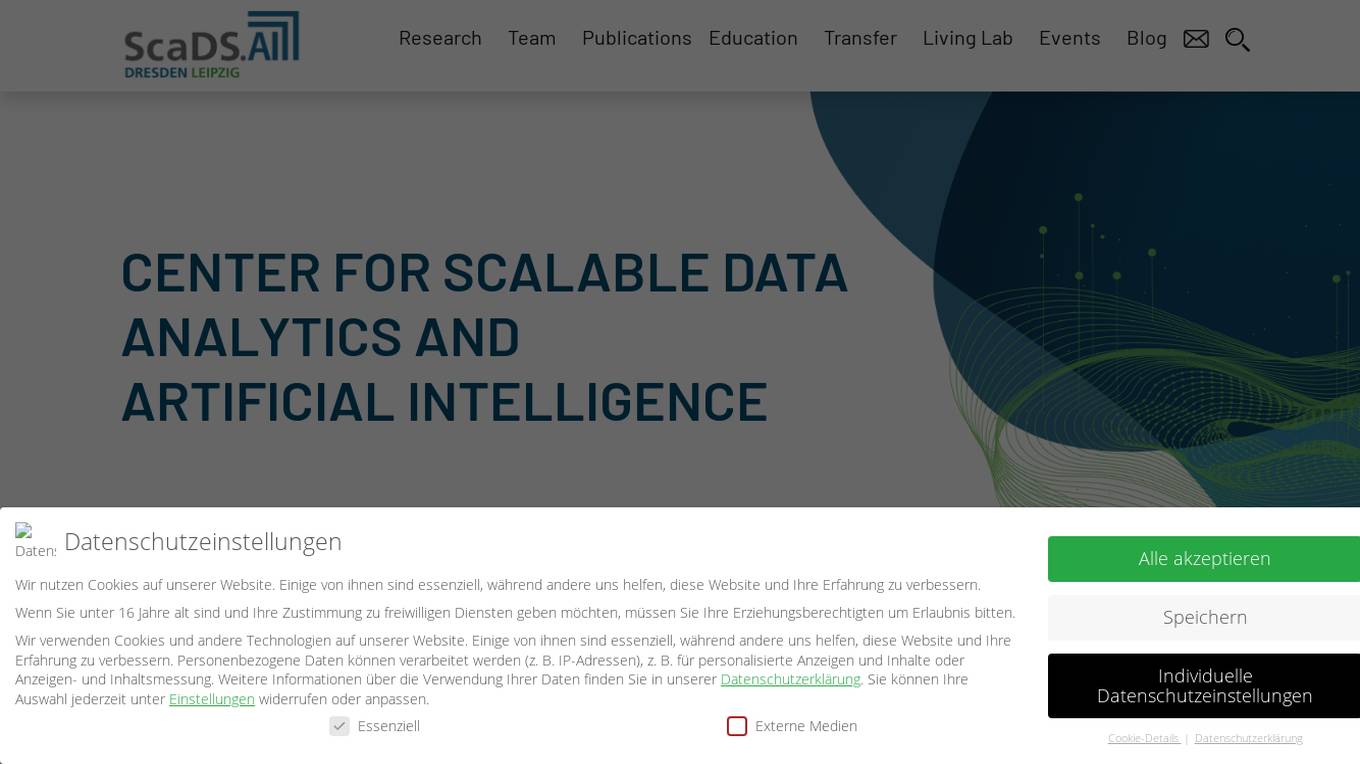
ScaDS.AI
ScaDS.AI (Center for Scalable Data Analytics and Artificial Intelligence) is a research center focusing on Data Science, Artificial Intelligence, and Big Data with locations in Dresden and Leipzig. It is one of the five new AI centers in Germany funded under the federal government's AI strategy by the Federal Ministry of Education and Research and the Free State of Saxony. The center collaborates closely with TUD Dresden University of Technology and Leipzig University, aiming to bridge the gap between mass data utilization, knowledge management, and advanced AI methods.
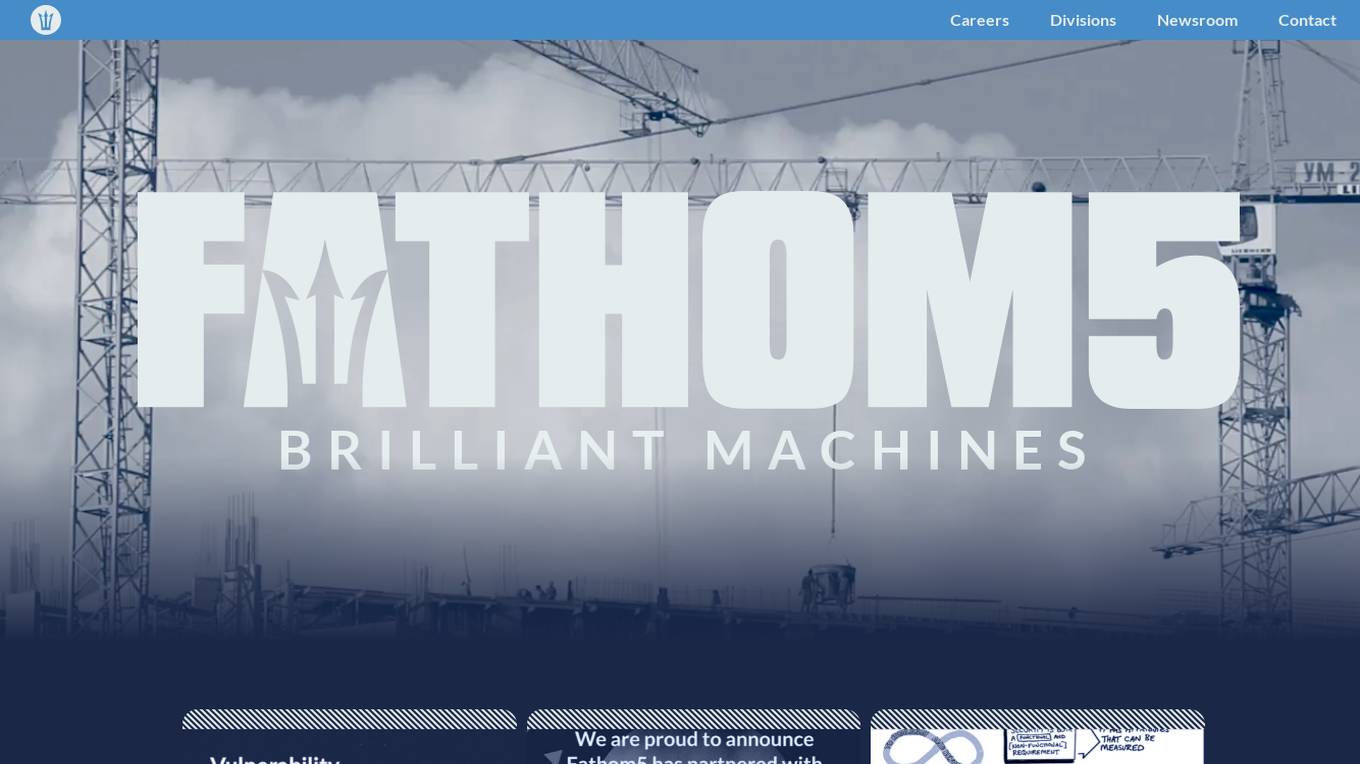
Fathom5
Fathom5 is a company that specializes in the intersection of AI and industrial systems. They offer a range of products and services to help customers build more resilient, flexible, and efficient industrial systems. Fathom5's approach is unique in that they take a security-first approach to cyber-physical system design. This means that security is built into every stage of the development process, from ideation to engineering to testing to deployment. This approach has been proven to achieve higher system resiliency and faster regulatory compliance at a reduced cost.

OpenAI Platform
OpenAI Platform is a suite of powerful AI tools that can help you build and deploy AI applications. With OpenAI Platform, you can access state-of-the-art AI models, including GPT-3, Codex, and DALL-E 2. You can also use OpenAI Platform to train your own custom AI models. OpenAI Platform is used by businesses of all sizes to build a wide range of AI applications, including chatbots, language translation tools, and image generators.
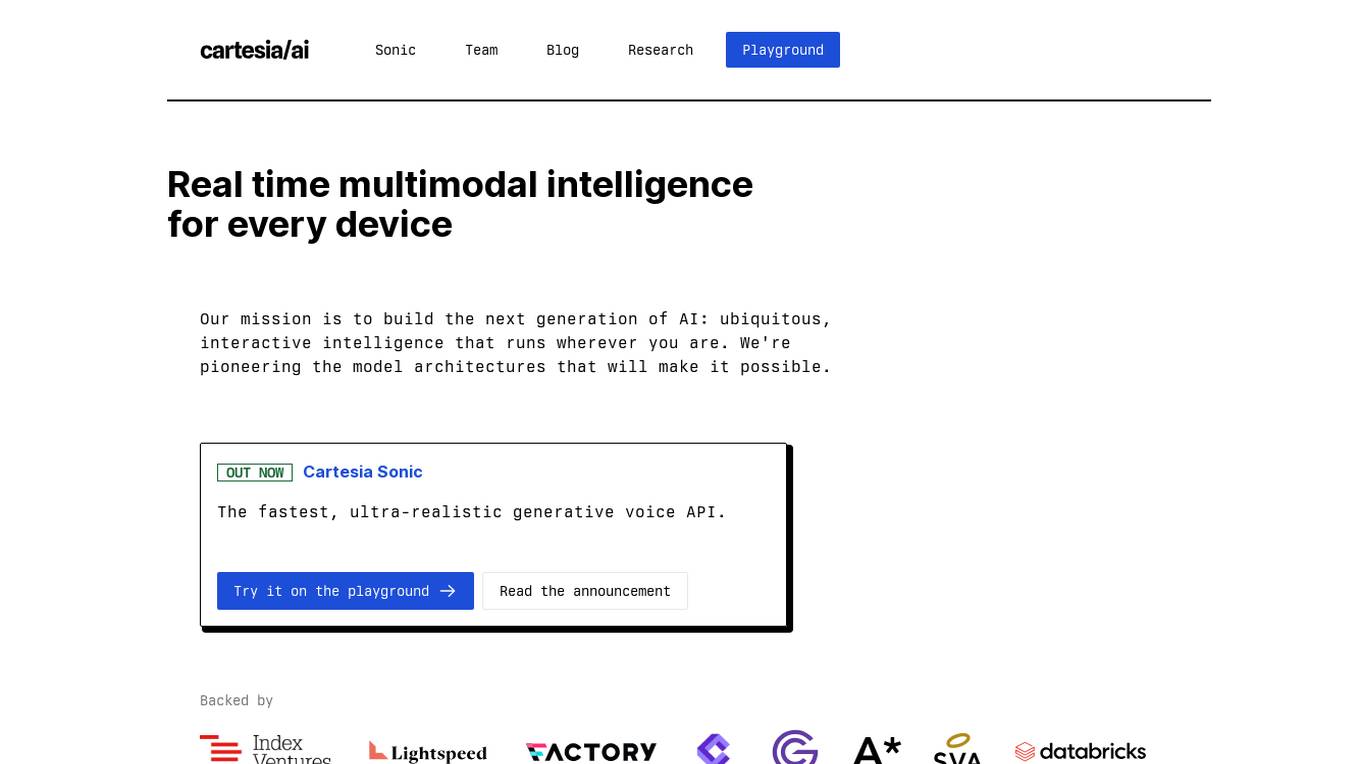
Cartesia Sonic Team Blog Research Playground
Cartesia Sonic Team Blog Research Playground is an AI application that offers real-time multimodal intelligence for every device. The application aims to build the next generation of AI by providing ubiquitous, interactive intelligence that can run on any device. It features the fastest, ultra-realistic generative voice API and is backed by research on simple linear attention language models and state-space models. The founding team, who met at the Stanford AI Lab, has invented State Space Models (SSMs) and scaled it up to achieve state-of-the-art results in various modalities such as text, audio, video, images, and time-series data.
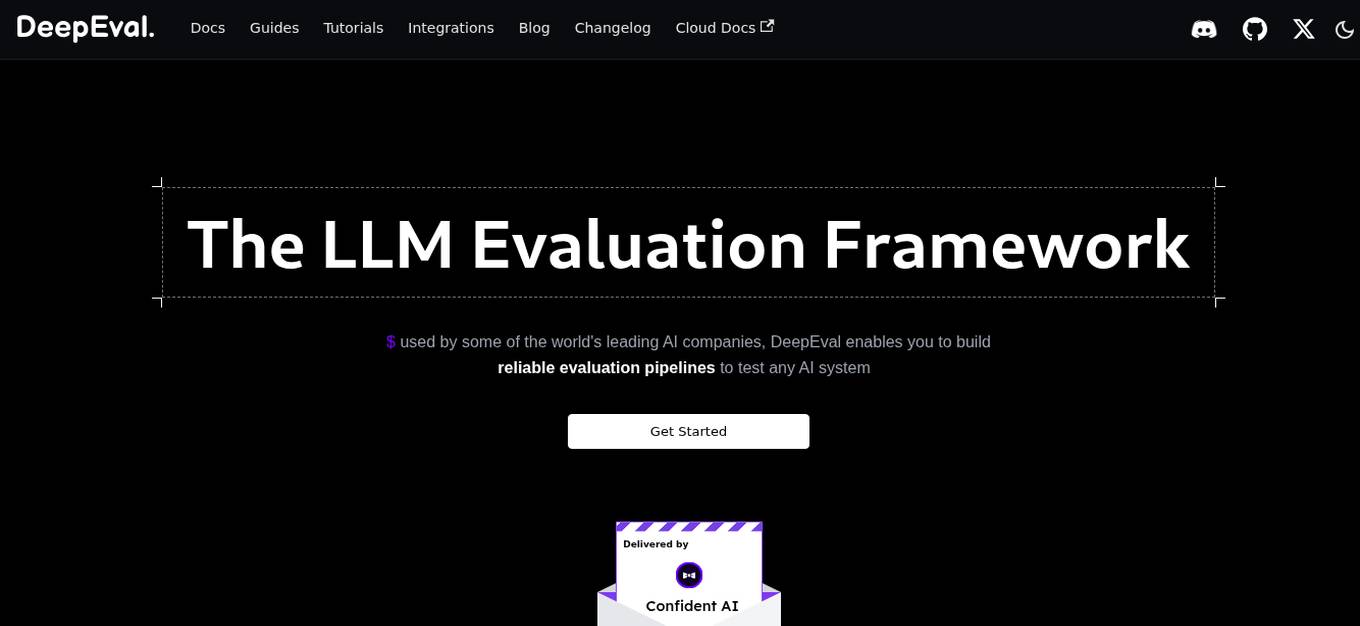
DeepEval
DeepEval by Confident AI is a comprehensive LLM Evaluation Framework used by leading AI companies. It enables users to build reliable evaluation pipelines to test any AI system. With 50+ research-backed metrics, native multi-modal support, and auto-optimization of prompts, DeepEval offers a sophisticated evaluation ecosystem for AI applications. The framework covers unit-testing for LLMs, single and multi-turn evaluations, generation & simulation of test data, and state-of-the-art evaluation techniques like G-Eval and DAG. DeepEval is integrated with Pytest and supports various system architectures, making it a versatile tool for AI testing.
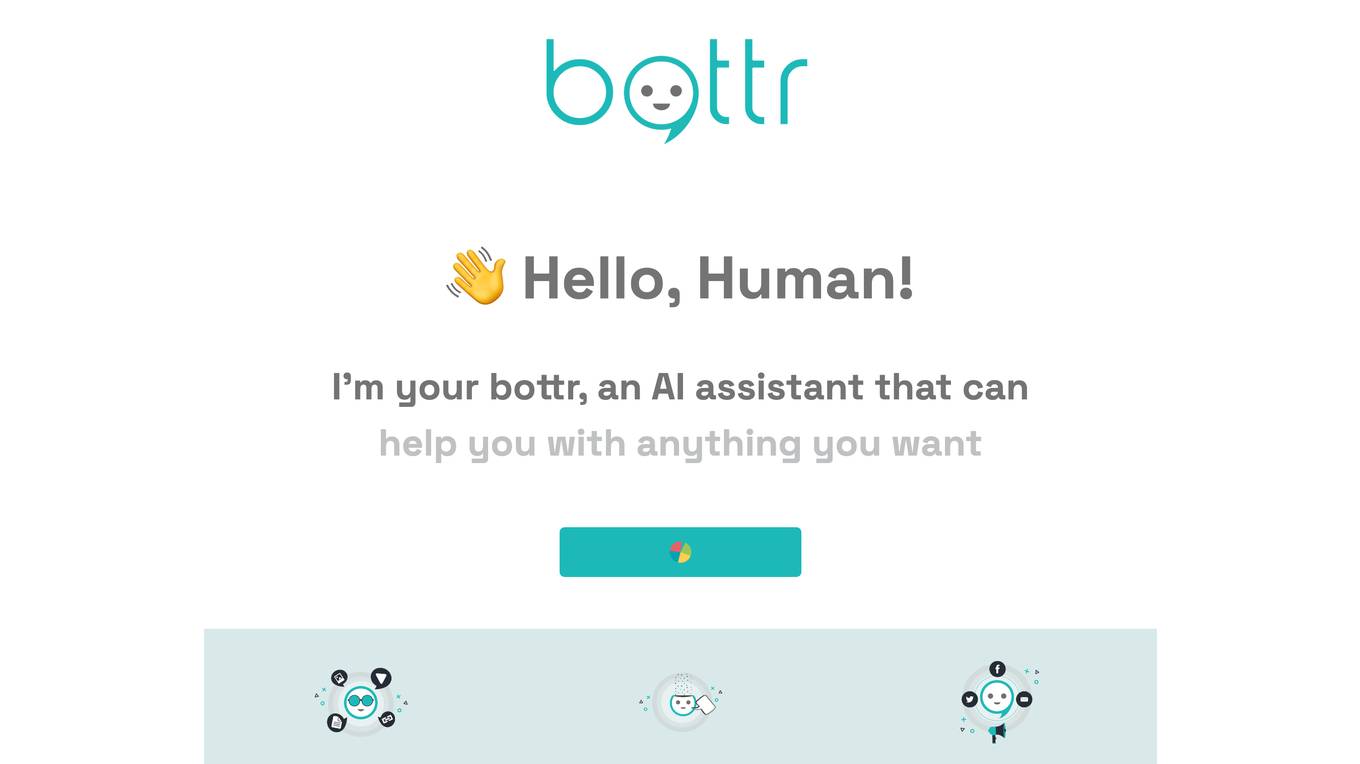
Bottr
Bottr is an AI assistant, companion, generator, and chatbot that can help you with anything you want. It is designed to make your life easier, more organized, and more productive. Bottr is more than just an assistant - it's your advisor and your companion all rolled into one. It is built on a state-of-the-art language model like chatGPT, enabling it to handle a wide range of tasks. From setting reminders and managing your schedule to conducting research and generating reports, your Bottr is there to assist. It is designed to evolve with you, learning from your preferences, habits, and needs, becoming more personalized and efficient over time.

Numerai
Numerai is a data science tournament platform where users can compete to build models that predict the stock market. The platform provides users with clean and regularized hedge fund quality data, and users can build models using Python or R scripts. Numerai also has a cryptocurrency, NMR, which users can stake on their models to earn rewards.
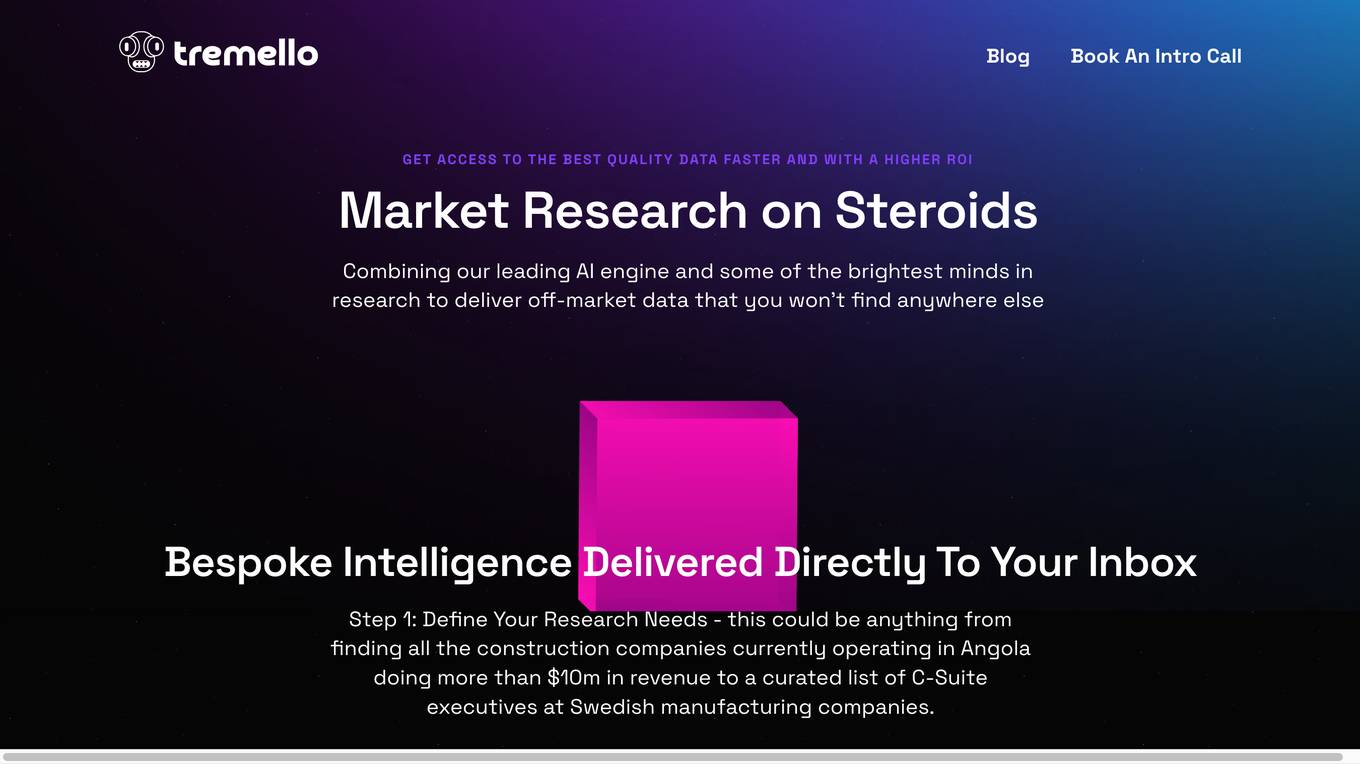
Tremello
Tremello is a market research platform that uses AI to deliver off-market data. It combines a leading AI engine with human experts to provide bespoke intelligence delivered directly to the user's inbox. Tremello's AI analyzes relationships, identifies patterns, and considers the broader context, delivering meaningful and actionable insights on top of a base human layer. It leverages a diverse range of data sources, including public and private databases, industry reports, social media archives, company websites, and government filings, ensuring a complete and comprehensive picture of the research subject.
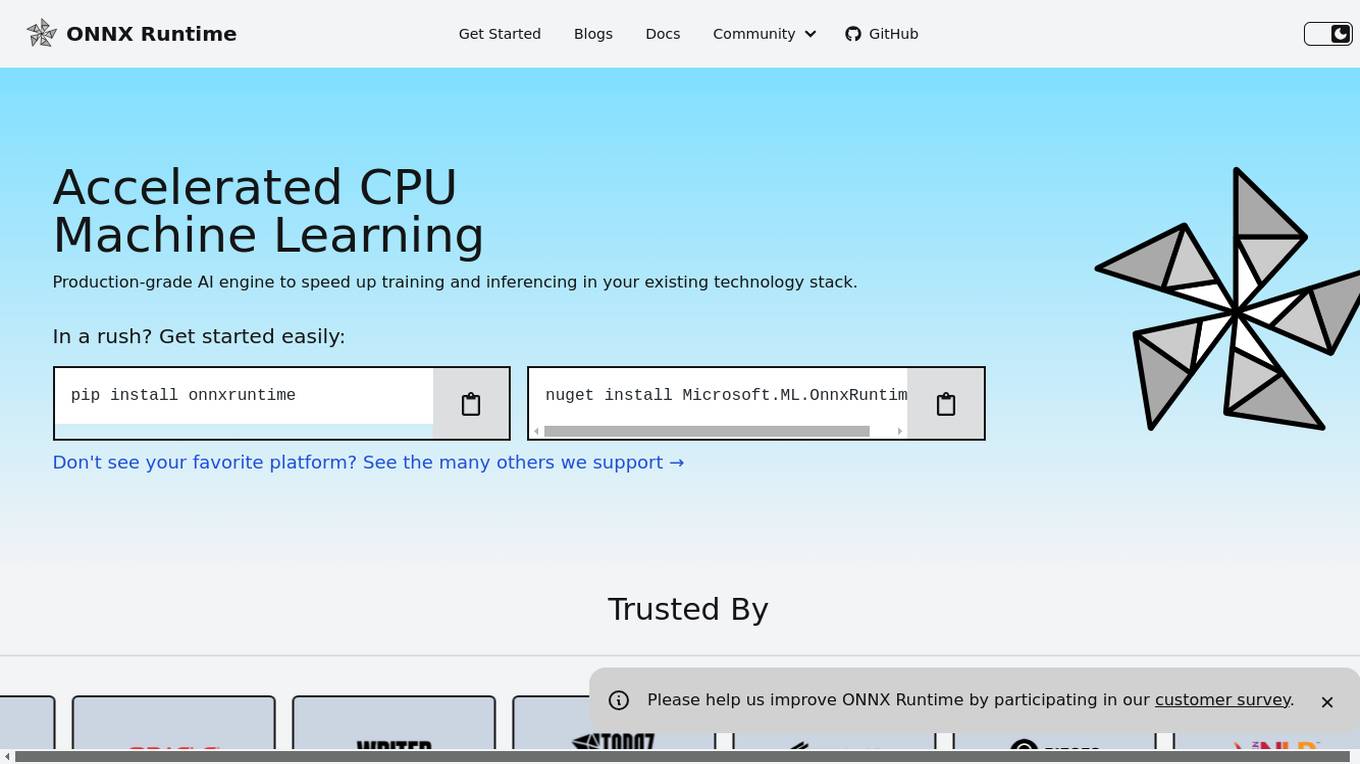
ONNX Runtime
ONNX Runtime is a production-grade AI engine designed to accelerate machine learning training and inferencing in various technology stacks. It supports multiple languages and platforms, optimizing performance for CPU, GPU, and NPU hardware. ONNX Runtime powers AI in Microsoft products and is widely used in cloud, edge, web, and mobile applications. It also enables large model training and on-device training, offering state-of-the-art models for tasks like image synthesis and text generation.
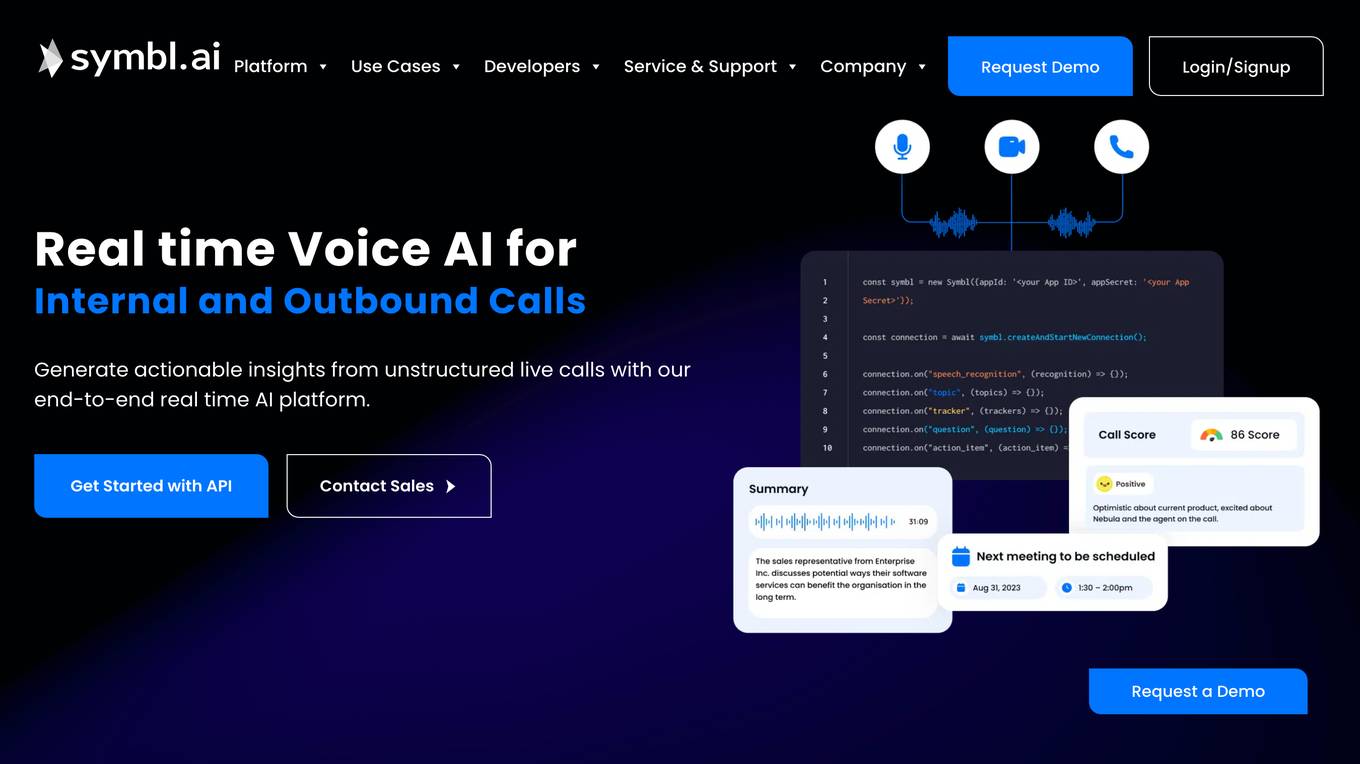
Symbl.ai
Symbl.ai is a real-time voice AI platform that enables businesses to extract insights from unstructured live calls. It offers a range of features, including real-time transcription, sentiment analysis, question detection, and topic tracking. Symbl.ai's platform is powered by Nebula, a proprietary LLM that is specialized in understanding human interactions in streaming mode. This allows Symbl.ai to provide accurate and low-latency insights that can be used to improve customer service, sales, and compliance.
1 - Open Source AI Tools
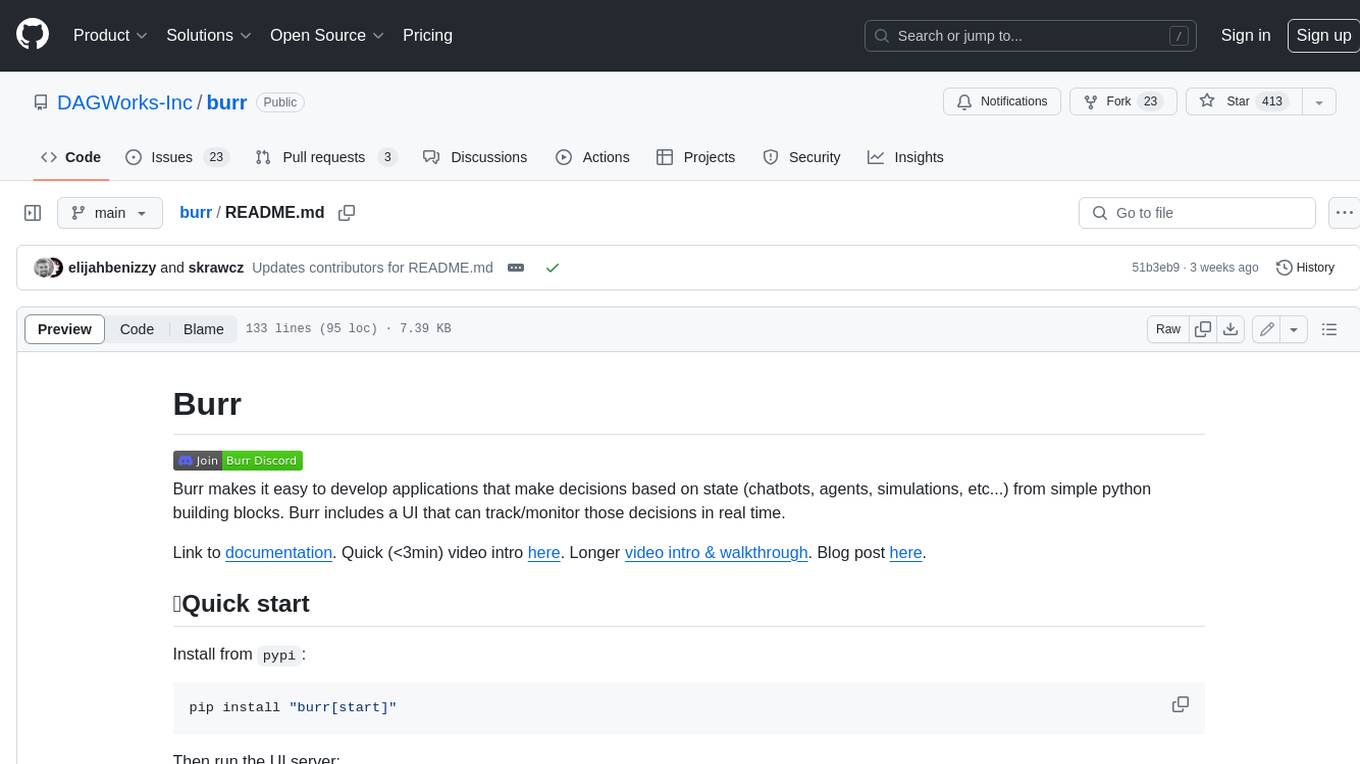
burr
Burr is a Python library and UI that makes it easy to develop applications that make decisions based on state (chatbots, agents, simulations, etc...). Burr includes a UI that can track/monitor those decisions in real time.
20 - OpenAI Gpts
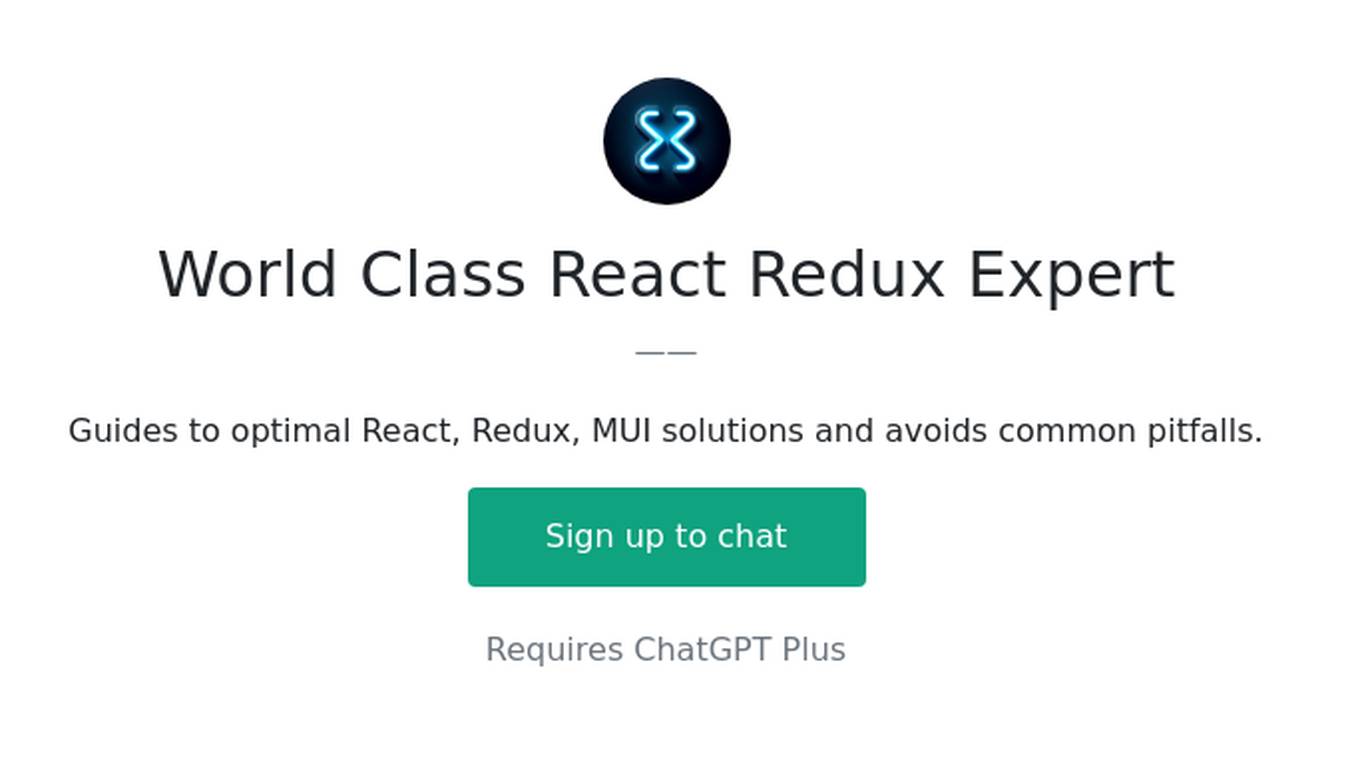
World Class React Redux Expert
Guides to optimal React, Redux, MUI solutions and avoids common pitfalls.
![[latest] Vue.js GPT Screenshot](/screenshots_gpts/g-LXEGvZLUS.jpg)
[latest] Vue.js GPT
Versatile, up-to-date Vue.js assistant with knowledge of the latest version. Part of the [latest] GPTs family.
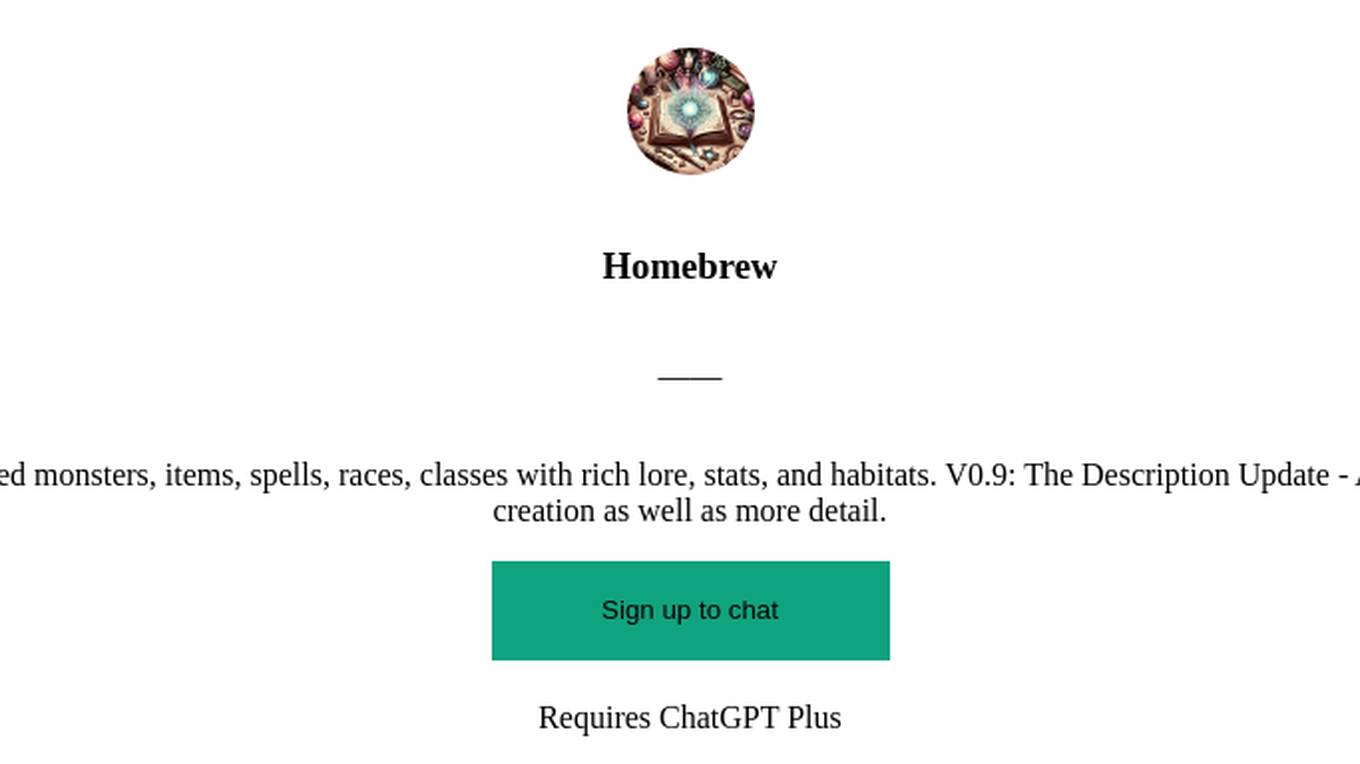
Homebrew
Expert Homebrew DND tool for crafting detailed monsters, items, spells, races, classes with rich lore, stats, and habitats. V0.9: The Description Update - Added reactions, equipment and more to monster creation as well as more detail.

Buildo Expert
Your go-to guide for all things MultiversX blockchain. Here to help and enlighten!
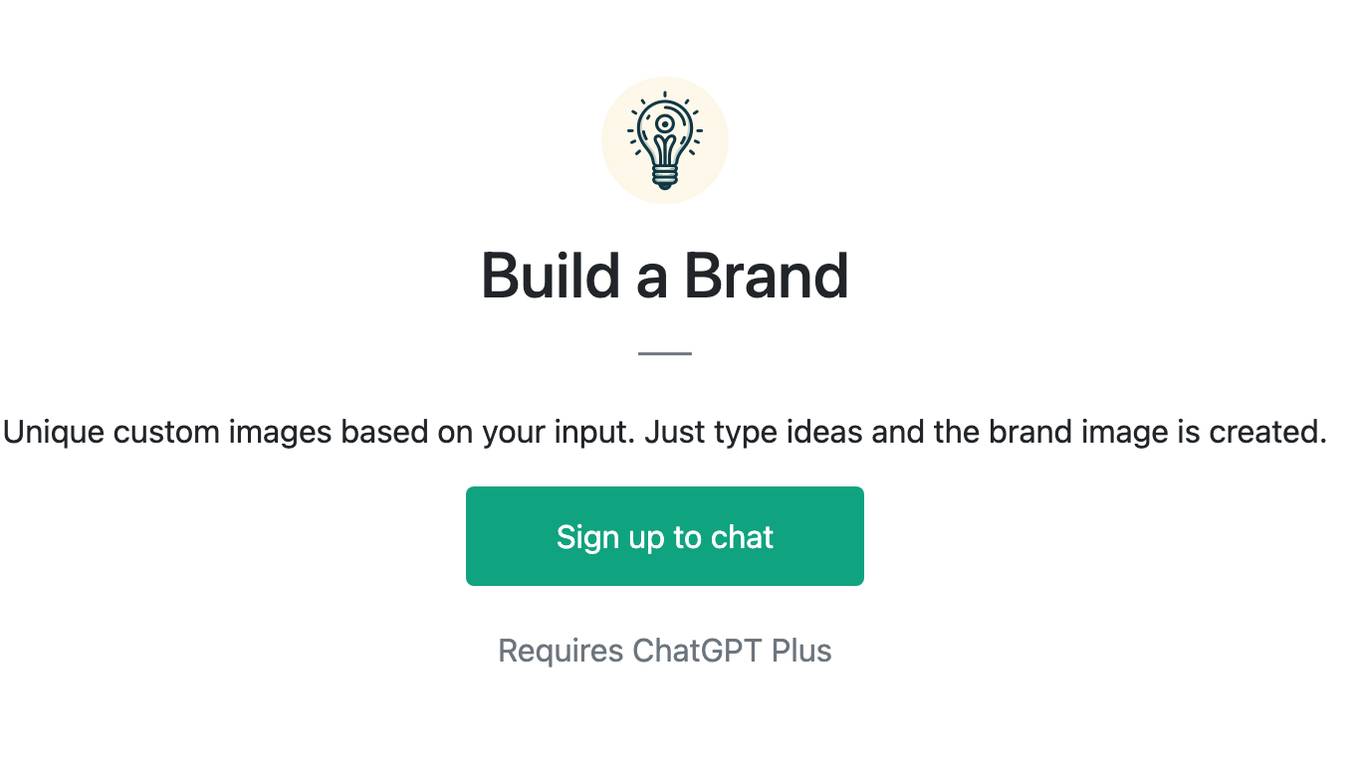
Build a Brand
Unique custom images based on your input. Just type ideas and the brand image is created.
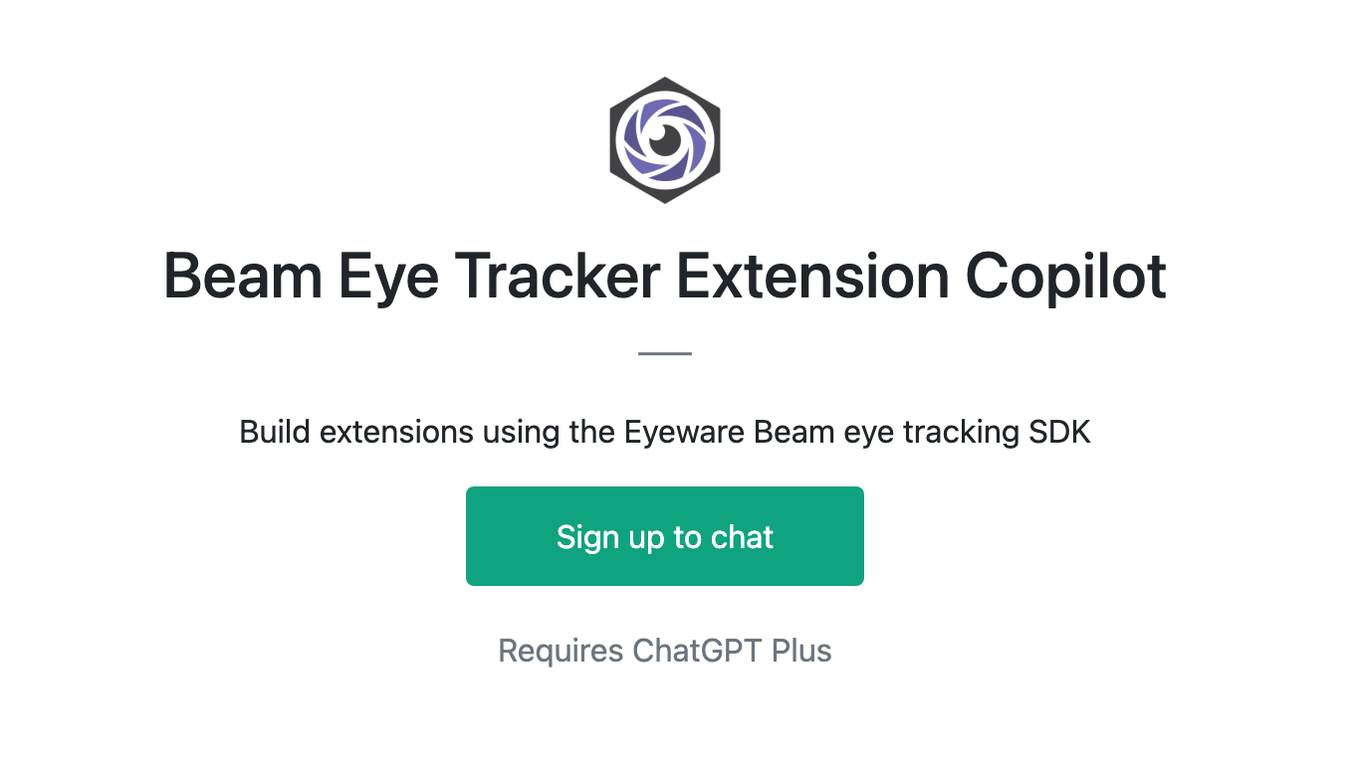
Beam Eye Tracker Extension Copilot
Build extensions using the Eyeware Beam eye tracking SDK
